Meningitis refers to the inflammation of the protective layers (meninges) that surround the brain and spinal cord. This condition can escalate quickly, making it a serious medical concern, especially in children and immunocompromised individuals.Causes of MeningitisThe inflammation seen in meningitis is typically triggered by an infection. Various microorganisms including bacteria, viruses, fungi, and in rare cases, parasites can be responsible. Bacterial meningitis is the most severe form and i...
Malaria continues to be a significant health concern, especially in countries with tropical climates like India. Among children, the disease can lead to serious complications if not recognized and treated early. Caused by a parasite and spread by mosquitoes, malaria affects thousands of young lives every year. Awareness about its symptoms, how it spreads, and the right approach to prevention and care is key to reducing the disease burden in the community.What Is Malaria?Malaria is an infection t...
Ringworm is a widespread fungal infection that often affects children, though adults can also contract it. Despite its name, ringworm has nothing to do with actual worms. The term refers to the circular, ring-like rash that typically forms on the skin. Medically, the infection is known as Tinea, and its classification depends on the area it affects. Tinea corporis appears on the body’s skin, Tinea capitis affects the scalp and hair, Tinea unguium impacts the nails, Tinea pedis, commonly called A...
Rabies is one of the oldest and most feared infectious diseases known to humanity. It is a viral illness that primarily affects the nervous system and is transmitted to humans through the bite or scratch of an infected animal, most often dogs, bats, or wild mammals. What makes rabies especially dangerous is that once clinical symptoms appear, the disease is almost always fatal. However, rabies is preventable with timely medical care, making awareness of its causes, symptoms, and prevention cruci...
Polio, or poliomyelitis, is a viral illness that primarily affects children and has historically been one of the most feared diseases worldwide. It is caused by the poliovirus, which can invade the nervous system and, in severe cases, lead to lifelong paralysis. While global vaccination efforts have significantly reduced its prevalence, polio remains a concern in some regions, making awareness and prevention vital for children’s health.Causes of PolioPolio is caused by infection with the poliovi...
Pinworms are tiny, thread-like white worms that live in the human intestine. Measuring about one centimeter in length, they are scientifically known as Enterobius vermicularis. These parasites are extremely common among children across the world, especially in school-going age groups, where close contact and shared environments make them easy to spread. Although they do not usually cause serious illness, they can lead to discomfort and disrupt daily routines if not treated promptly. How Do Pinwo...
Pertussis, also called whooping cough, is a highly contagious respiratory infection caused by the bacterium Bordetella pertussis. It primarily affects infants and young children, spreading easily through coughing, sneezing, or close contact with an infected person. Despite being preventable through vaccination, pertussis continues to cause concern in many parts of the world, particularly when children are not fully immunized. Recognizing the condition early is important because timely care can p...
Scabies is a contagious skin infestation that commonly affects children. It is caused by tiny mites known as Sarcoptes scabiei, which burrow into the skin and trigger an allergic reaction. This reaction results in intense itching and a rash, often making children extremely uncomfortable, especially at night. Though scabies is not a dangerous disease in itself, it can cause considerable distress and may lead to secondary infections if left untreated. Understanding its nature, symptoms, and treatm...
Measles is a highly contagious viral infection that primarily affects children. It presents with distinctive symptoms, including a skin rash and fever, and spreads quickly in communities, especially where vaccination coverage is low. Although often mild, measles can sometimes lead to serious complications, making early recognition and prevention essential.Cause of MeaslesThe illness is caused by the measles virus, a member of the paramyxovirus family. Once the virus enters the body, it multiplie...
Rubella, also known as German measles, is a contagious viral infection that primarily affects children but can also occur in adults. Though typically mild in its symptoms, rubella carries serious risks, especially for pregnant women and their unborn babies. With the right awareness and vaccination, the infection is both preventable and manageable.The Virus Behind the IllnessRubella is caused by the rubella virus, which is classified under the Togaviridae family. It spreads easily from person to...
Pinworm infestation is a common parasitic infection that primarily affects young children. The condition is caused by a small intestinal worm known as Enterobius vermicularis. These thread-like worms often go unnoticed but can cause significant discomfort, especially during the night. While the condition is rarely dangerous, early recognition and proper treatment are essential to prevent recurrence and transmission.How Pinworms Spread Among Children Pinworm eggs are usually deposited around the...
Nasal bleeding, or epistaxis, is a frequent issue seen in young children, especially boys. While it can be alarming for caregivers, most episodes are mild and resolve quickly without complications. Understanding the underlying reasons and how to respond appropriately can ease concern and ensure proper care. Common Triggers of Nosebleeds Nosebleeds can arise from local or systemic causes. Among the most frequent local causes is minor trauma such as nose-picking or accidental injury. Children may...
Mumps is a contagious viral infection that affects the salivary glands, especially the parotid glands, located near the ears. When these glands become inflamed, they cause visible swelling on the face and jaw, often accompanied by pain. While mumps is usually mild in children, it can lead to serious complications if not managed properly or if it occurs in older individuals. Causes and Mode of Transmission The infection is caused by the mumps virus, which belongs to the paramyxovirus gr...
Tetanus, commonly referred to as lockjaw, is a dangerous condition caused by the bacterium Clostridium tetani. This microorganism produces a toxin that affects the nervous system and results in severe muscle stiffness and spasms. Unlike many other infections, tetanus does not spread from person to person. Instead, the bacteria enter the body through wounds or cuts contaminated with soil, dust, or feces where the spores are commonly found. How Tetanus Spreads Tetanus spores are wi...
Typhoid fever, also referred to as enteric fever, is a bacterial infection caused by Salmonella typhi. A similar infection called paratyphoid fever is due to related bacteria and is typically milder. Typhoid continues to be a major health concern in many developing countries, including India, and affects both children and adults, particularly in areas lacking safe water and proper sanitation.How the Disease SpreadsTyphoid is primarily transmitted through the consumption of food or water contamin...
Here are the main advantages of taking health insurance when you are young:✅ 1. Lower Premiums • Health insurance premiums are usually lower when you are young and healthy.✅ 2. Covers Unexpected Health Issues • Accidents, injuries, or sudden illnesses can happen at any age. • Insurance protects you from high medical bills for emergencies, hospital stays, or surgery.✅ 3. Access to Preventive Care • Most plans cover: • Vaccinations • Regular check-ups • Screenings (like vision, hearing, and men...
Before buying a health insurance cover, it is important to look at several key features to make sure the policy fits your needs and offers good value. Here's what to look for:✅ 1. Coverage and Benefits • What is covered? (Hospital stays, surgeries, doctor visits, maternity, mental health, etc.) • Does it cover day care procedures? • Does it include outpatient care? (Not just hospitalization) • Does it cover pre-existing conditions? • Are preventive services (check-ups, vaccines) included?✅ 2....
Jaundice is one of the most commonly observed conditions in newborns during the early days of life. While the appearance of yellowish skin may cause concern, in most cases, jaundice is a temporary and manageable condition. Knowing when it is normal and when it may need treatment is essential for new parents and caregivers. What Exactly Is Newborn Jaundice? Jaundice refers to the yellowish discoloration of a baby’s skin and the whites of the eyes. This change in color is due to a buildu...
Welcoming a newborn into the world is filled with joy, but it also brings with it a fair share of questions and concerns, especially when unexpected changes appear on the baby’s skin. Skin rashes, spots, and birthmarks are among the most common issues that worry new parents. While these skin conditions may look unfamiliar or even alarming, most are completely harmless and disappear on their own with time. This article explores the most frequent types of rashes seen in newborns and aims to help p...
The first chill of winter doesn’t just bring out sweaters and hot cocoa—it often brings with it the dreaded flu season. One moment a child is laughing at play, and the next, they’re curled up on the couch with a flushed face, watery eyes, and a hacking cough. For many parents, this familiar pattern sparks concern. Could it be the flu? And how serious can it get?Let’s unpack what every parent should know about seasonal influenza in children—and how to be better prepared when the sniffles strike.&...
Ear infections are one of the most common health concerns during early childhood. They can lead to discomfort, sleepless nights, and anxious caregivers. Among these, infections affecting the middle part of the ear—medically termed otitis media—are particularly widespread in infants and toddlers. While often short-lived, understanding the causes, symptoms, and treatment options can make a world of difference in managing this condition effectively. What Exactly Is Otitis Media? The ear i...
Cholera is a potentially life-threatening infectious disease caused by the bacterium Vibrio cholerae. It is known for its sudden onset and rapid spread, particularly in areas with inadequate access to clean water and poor sanitation systems. The disease leads to severe watery diarrhea and dehydration, which can be fatal if not treated promptly. Cholera can affect people of all age groups, from infants to the elderly, and is often seen in outbreaks or epidemics, especially during floods or other...
Diphtheria is a serious and potentially life-threatening illness caused by the bacterium Corynebacterium diphtheriae. Even though it can affect individuals of any age, children are particularly vulnerable if not fully immunized. The most dangerous effects of diphtheria arise from a specific toxin produced by this bacterium, which can damage multiple organ systems. How Diphtheria Spreads This infection spreads chiefly through airborne droplets expelled when an infected person coughs or...
Lice infestation is a common concern among school-aged children, often causing discomfort, irritation, and concern for parents. Though not a dangerous condition, lice can be stubborn and socially distressing. The key to managing it lies in understanding how lice spread, recognizing the signs early, and applying effective treatments. What Are Lice? Lice are tiny, wingless insects that survive by feeding on human blood. They measure only a few millimeters in length and move quickly throu...
Croup is a respiratory illness that primarily affects young children and leads to swelling of the upper airways. This swelling results in a distinctive cough that often sounds like a bark, along with noisy breathing and discomfort while inhaling. Medically referred to as laryngotracheobronchitis, croup can range from mild to severe, depending on the extent of airway inflammation. Understanding the Cause This condition is most commonly triggered by viral infections. Viruses such as para...
Constipation in children refers to the passage of stools that are hard, dry, or infrequent, causing discomfort or pain. While some kids may naturally have bowel movements only every two or three days, this doesn’t amount to constipation if the stools are soft and passed easily. If a child strains frequently, passes hard stools, or has fewer than three bowel movements in a week, it’s time to consider the possibility of constipation. Common Triggers Behind Childhood Constipation Most cas...
Bronchiolitis is an infection of the lungs that almost exclusively affects infants and toddlers under two years of age. It inflames the bronchioles—the tiny airways responsible for shuttling oxygen to the blood and removing carbon dioxide. When these narrow passages become swollen or clogged with mucus, airflow is impeded, making breathing difficult for little ones. The Importance of Bronchioles Bronchioles are the smallest airways in the lungs, branching off from the larger bronchi an...
Chickenpox, medically known as varicella, is a highly contagious viral infection that primarily affects children. It is caused by the varicella-zoster virus, which spreads rapidly from person to person, especially in group settings like schools or households. Though often considered a mild illness in children, chickenpox can become serious in adults, pregnant women, and individuals with weakened immune systems. With symptoms that range from fever to an itchy rash, this infection, while common, r...
Amebiasis is an infection of the intestine caused by a microscopic parasite known as Entamoeba histolytica. While many people infected with this organism may not experience symptoms, the disease can become severe and even life-threatening in some cases. It spreads easily in regions with poor sanitation, making it a significant public health concern in many tropical and developing areas, including parts of India. How Amebiasis Spreads The infection is primarily transmitted through the f...
Abdominal pain is one of the most frequent complaints in children and can be challenging to assess. While many cases are mild and resolve without treatment, some instances require careful attention and timely medical care. Understanding the possible causes and recognizing warning signs can help guide decisions and ensure a child’s well-being. When Is Stomach Pain a Concern? In most situations, a child’s stomachache improves with rest, hydration, and time. However, the pattern of pain c...
Burn injuries among children are not only physically distressing but can also leave lasting emotional scars. Pediatric plastic surgery plays an essential role in managing such injuries, aiding in functional restoration, and improving aesthetic appearance. This article delves into the various burn conditions affecting children, treatment methodologies, and the latest surgical techniques employed in pediatric burn care. Understanding Pediatric Burn Conditions Children are particularly vu...
Kidneys are essential organs that play a vital role in maintaining a child’s internal balance. They filter waste from the blood, regulate blood pressure, maintain fluid and electrolyte levels, and contribute to overall growth and development. In children, healthy kidney function is especially important as it supports their rapid physical and cognitive development. Any disruption in kidney function can have lasting effects on their well-being, making early detection and care an absolute priority....
Burn injuries in children can be life-changing, not just physically but emotionally as well. While medical treatments can heal the skin, the psychological effects can last much longer. The trauma of experiencing a burn, enduring painful treatments, and adjusting to physical changes can be overwhelming for both the child and their family. Understanding these emotional challenges is essential for helping them heal completely. How Children Are Affected Emotionally A burn injury is a traum...
Pediatric blood cancer is a serious disease that affects children and teenagers. The most common types, leukemia and lymphoma, interfere with the body's ability to produce healthy blood cells. While medical advancements have greatly improved survival rates, early detection remains key to successful treatment. This article explains the symptoms of pediatric blood cancer and explores the available treatment options. Signs to Watch For Detecting blood cancer early can make a significant d...
While heart disease is commonly linked with adults, children are not immune to heart-related conditions. Pediatric heart diseases can either be present at birth or develop later due to infections or other medical factors. Understanding these disorders and identifying them early can significantly improve outcomes and quality of life for affected children. Congenital Heart Defects Congenital heart defects are the most frequent form of heart disease in children. These abnormalities occur...
Pregnancy causes many changes in a woman's body, which can affect how anaesthesia is given. While non-urgent surgeries are usually delayed until after childbirth, some emergencies require immediate surgical intervention. The goal of anaesthesia during pregnancy is to ensure the safety of both the mother and the baby. When is Surgery Needed During Pregnancy? Sometimes, pregnant women need surgery for conditions unrelated to pregnancy. Common reasons include appendicitis, gallbladder dis...
Pregnancy is a unique and transformative journey, yet certain circumstances necessitate increased medical oversight. Pregnancy is deemed high-risk when potential complications threaten the health of the mother, baby, or both. Various factors contribute to this classification, including pre-existing medical conditions and issues that arise during gestation. Awareness of these risks empowers expectant mothers to make informed decisions and take preventive measures for a safer pregnancy.Factors Tha...
Child and adolescent psychiatry is a medical specialty dedicated to understanding, diagnosing, and treating mental health issues in children and teenagers, from infancy to adolescence. It brings together medical expertise, psychological insights, and social factors to help young individuals navigate emotional, cognitive, and behavioral challenges as they grow. The Role of a Child and Adolescent Psychiatrist A child and adolescent psychiatrist is a doctor who specializes in unders...
When it comes to eye care, many people are unsure about the differences between ophthalmologists and optometrists. While both professionals are dedicated to maintaining vision health, their training, expertise, and scope of practice differ significantly. Understanding these distinctions ensures that you receive the right care based on your needs, whether it is a routine eye check-up, vision correction, or specialized medical treatment.What is an Ophthalmologist?An ophthalmologist is a medical do...
Gastroenterologists are medical professionals specializing in diagnosing and managing disorders affecting the digestive system, which includes the esophagus, stomach, intestines, liver, pancreas, gallbladder, and bile ducts. They help individuals address conditions that impact digestion, nutrient absorption, and overall wellness. Acid Reflux and GERDAcid reflux occurs when stomach acid flows backward into the esophagus, leading to a burning sensation known as heartburn. Frequent episo...
Type 1 diabetes is a lifelong condition that often develops in children and young adults when the pancreas stops producing insulin. Insulin is a hormone that helps regulate blood sugar levels, and without it, sugar accumulates in the bloodstream, leading to potential health problems. Unlike Type 2 diabetes, which is often linked to lifestyle choices, Type 1 diabetes occurs due to an immune system attack on insulin-producing cells and cannot be prevented. Symptoms of Type 1 Diabetes in...
Going through a miscarriage is incredibly tough, both physically and emotionally, and deciding to try again can bring a mix of hope and anxiety. It's important to give yourself the time and space to heal while also focusing on your overall well-being. Prioritizing a healthy lifestyle, managing stress, and seeking medical guidance can all help set the stage for a successful pregnancy. Whether it’s improving your diet, tracking ovulation, or simply staying positive, taking small steps can make a b...
The endocrine system plays a vital role in a child’s growth, development, and overall well-being. It consists of glands that produce hormones, which act as messengers regulating essential functions like metabolism, growth, and puberty. When something disrupts this delicate balance, endocrine disorders can develop, affecting a child’s health and quality of life. Early diagnosis and proper treatment are crucial for ensuring children with these conditions grow and thrive. Common Endocrine Diso...
Emergency departments can be overwhelming for children, with bright lights, unfamiliar faces, and intimidating medical equipment. A child-friendly emergency department (CFED) is designed to make this environment less stressful and more welcoming. By using child-focused practices, hospitals can ensure young patients receive quality care in a comforting space. Practices for a Child-Friendly ED A child-friendly ED starts with staff trained in pediatric care. These professionals know...
Hearing is essential for a child's growth, shaping how they communicate, learn, and interact with the world. Single-Sided Deafness (SSD), also called unilateral hearing loss, happens when a child can hear well in one ear but has little to no hearing in the other. While it may not always be immediately noticeable, SSD can create significant challenges in daily life. Children with this condition may struggle to process sound effectively, especially in noisy environments, and may find it harder to...
Pediatric neurosurgery is a specialized branch of medicine that focuses on diagnosing and treating brain and nervous system disorders in children, from newborns to teenagers. Since a child's nervous system is still developing, these conditions can be complex and require expert surgical care. Pediatric neurosurgeons use advanced techniques to address issues like birth defects, brain tumors, and injuries, helping children lead healthier lives. Common Pediatric Neurosurgical Disorders&nb...
Pediatric cancer is a type of cancer that affects children and teenagers. Although it is not as common as adult cancers, it is still one of the major causes of illness and death among young patients worldwide. Detecting it early and starting treatment as soon as possible can greatly improve a child's chances of recovery. In this blog, we will explore the different types of pediatric cancer, common symptoms to watch for, available treatment options, and the support systems that can help families...
Inherited blood disorders are genetic conditions that are passed down from parents to their children, affecting how blood cells are produced and function in the body. These conditions can influence red and white blood cells, platelets, or plasma, potentially leading to serious health challenges. Detecting these disorders early and receiving proper medical care can greatly enhance the well-being of those affected. Common Types of Inherited Blood Disorders Sickle Cell Disease...
The human body functions through a complex network of hormones that regulate essential processes such as metabolism, growth, and emotional well-being. When this balance is disrupted, it can lead to various health complications. This is where an endocrinologist becomes crucial. These medical specialists diagnose and treat hormone-related disorders, ensuring that the body's internal system remains stable and functional. Who Is an Endocrinologist? An endocrinologist is a doctor specializi...
Imagine being a child and suddenly losing the ability to smile, speak, or even recognize yourself in the mirror. Severe facial burns can have a devastating impact, not just physically but emotionally too. These injuries can shake a child's confidence, make social interactions difficult, and deeply affect their overall well-being. Traditional reconstructive surgeries, while helpful, often require multiple complicated procedures over many years. Even then, they may not fully restore a natural appe...
Paediatric cardiology focuses on diagnosing and treating heart conditions in children, from birth to adolescence. Specialists in this field detect and manage congenital and acquired heart issues, such as structural defects and rhythm disorders.With expertise in the unique needs of a child's heart, paediatric cardiologists use advanced tools to provide early diagnosis and effective treatment, ensuring better heart health and overall well-being. Common Paediatric Heart Conditions Paediat...
After childbirth, mothers often prioritise their newborn’s needs, neglecting their own reproductive health. However, postpartum contraception is crucial for allowing the body to recover and regain strength before another pregnancy. Without proper birth control, unplanned pregnancies can occur within months, increasing health risks for both mother and baby. Choosing the right contraception ensures women can plan future pregnancies safely and responsibly. Why is Postpartum Contraception Impor...
Women's health is complex and requires specialized care at different life stages. Gynaecologists and obstetricians play a crucial role in ensuring reproductive health, pregnancy care, and overall well-being. While gynaecologists focus on diagnosing and treating conditions related to the female reproductive system, obstetricians specialize in pregnancy, childbirth, and postnatal care.Routine Gynaecological CareRegular check-ups help maintain reproductive health and detect issues early. These serv...
Pregnancy is a journey filled with excitement, anticipation, and the need for careful monitoring to ensure both mother and baby are healthy. One of the most essential tools in prenatal care is ultrasound scanning. These scans provide critical insights into the baby’s development, helping doctors detect potential issues early and offering reassurance to expecting parents.What Is an Ultrasound Scan?An ultrasound scan is a safe and non-invasive imaging technique that uses high-frequency sound waves...
Inherited arrhythmias are heart rhythm disorders passed down through families. While some affected individuals show symptoms like fainting, palpitations, or even sudden cardiac arrest, others, especially siblings of diagnosed patients, may remain asymptomatic for years. Genetic testing has emerged as a critical tool in identifying at-risk individuals early, allowing for preventive care and timely medical interventions.Understanding Inherited ArrhythmiasInherited arrhythmias are caused by genetic...
Our digestive system plays a crucial role in overall health, but it’s often overlooked until problems arise. Stomach pain, bloating, acidity, or irregular bowel movements may seem common, but persistent issues could signal something more serious. A gastroenterologist specializes in diagnosing and treating conditions related to the digestive system, ensuring that minor discomforts don’t turn into major health concerns.When Should You See a Gastroenterologist?While occasional digestive discomfort...
Pregnancy: From Conception to Delivery For many, pregnancy is an incredible journey filled with excitement. From the moment of conception to the day of delivery, a woman’s body undergoes remarkable changes to nurture and protect the growing baby. Understanding each stage of pregnancy can help expecting parents prepare for the experience and ensure a smooth, healthy journey.The Beginning: Conception and Early PregnancyPregnancy begins when a sperm fertilizes an egg, forming a zygote. This tiny c...
The kidneys play a vital role in maintaining a child's overall health by filtering waste, balancing electrolytes, and regulating fluid levels in the body. However, kidney disorders in children can sometimes go unnoticed until they become serious. Pediatric nephrology focuses on diagnosing and treating kidney-related conditions in infants, children, and adolescents. Recognizing the symptoms early can help ensure timely treatment and prevent long-term complications.Urinary Tract Infections (UTIs)W...
Hypoplastic Left Heart Syndrome (HLHS) is a severe congenital heart defect where the left side of the heart is underdeveloped, making it difficult for the heart to pump oxygen-rich blood to the body. Traditionally, HLHS has been managed with staged postnatal surgeries. However, advancements in fetal interventions now offer the possibility of treating HLHS before birth. Understanding the outcomes of in utero interventions versus postnatal surgery is crucial in determining the best course of actio...
Anesthesia plays a critical role in pediatric cardiac surgery, ensuring that young patients remain pain-free and stable during complex procedures. The choice between regional anesthesia and general anesthesia can significantly impact postoperative outcomes, including recovery time, pain management, and overall health. Understanding the differences between these two approaches can help medical professionals and parents make informed decisions about what is best for a child undergoing heart surger...
The first month of breastfeeding is a journey filled with learning, bonding, and overcoming challenges. While it’s a natural process, it can also be overwhelming for new mothers. Understanding what to expect can make this experience smoother and more fulfilling for both mother and baby. Here are five things you’ll be glad to know about breastfeeding in the first month.1. Breastfeeding Takes Time to EstablishMany mothers assume that breastfeeding will happen instantly, but it actually takes time...
Pediatric anesthesiology plays a vital role in ensuring the safety and comfort of children undergoing medical procedures. Unlike adults, children have unique physiological and emotional needs that require specialized care during anesthesia administration. Pediatric anesthesiologists are trained to manage these complexities, ensuring a smooth and pain-free experience for young patients. Understanding the benefits of pediatric anesthesiology can help parents feel more confident when their child re...
The digestive system is vital for absorbing nutrients and eliminating waste. When it malfunctions, it can cause discomfort or serious conditions. Millions suffer from gastrointestinal (GI) disorders, ranging from mild to severe. Many share similar symptoms, making early recognition crucial for timely treatment and preventing complications.1. Gastroesophageal Reflux Disease (GERD)What It Is: GERD occurs when stomach acid frequently flows back into the esophagus, causing irritation and inflammatio...
Bringing a new life into the world is one of the most important moments in a mother’s journey. The maternity hospital you choose plays a crucial role in ensuring a safe, comfortable, and stress-free delivery. From skilled medical professionals to advanced neonatal care, the right hospital can make all the difference. Here are five key factors to consider when selecting the best maternity hospital for your delivery.1. Expertise of the Medical TeamThe qualifications and experience of the doctors,...
Children’s urinary and genital health can be a source of concern for many parents. While some issues resolve on their own, others require specialized care from a pediatric urologist. These experts diagnose and treat conditions affecting the urinary tract and reproductive system in children, ensuring that developmental milestones are met without complications.1. Frequent Urinary Tract Infections (UTIs)Recurrent UTIs in children may signal underlying issues like structural abnormalities in the uri...
Respiratory health is critical for children’s overall well-being, as breathing difficulties can impact their growth, energy levels, and ability to participate in daily activities. While many respiratory issues in children are mild and temporary, some require specialized care from a pediatric pulmonologist. These experts diagnose and treat a wide range of lung and respiratory conditions, ensuring that children receive tailored care to manage their symptoms effectively.1. Chronic or Recurrent Coug...
Pregnancy is a life-changing journey, and selecting the right hospital for your care plays a crucial role in ensuring a smooth experience. From prenatal care to delivery, the hospital you choose should align with your medical needs, preferences, and comfort. With so many options available, it’s essential to evaluate specific factors to make an informed decision.1. Evaluate the Hospital’s Reputation and ExpertiseA hospital’s reputation speaks volumes about the quality of care it provides. Look fo...
Mental health plays a crucial role in a child’s overall development, impacting their emotional, social, and academic growth. Pediatric psychiatry focuses on diagnosing and treating mental health conditions in children and adolescents. With the rising awareness of mental health issues among young individuals, timely intervention through specialized care has become essential. Chennai offers some of the most advanced and compassionate pediatric psychiatry services, ensuring children receive the sup...
Vision plays a crucial role in a child’s development, impacting their learning, social interactions, and overall well-being. Pediatric ophthalmology focuses on diagnosing and treating eye conditions in children, ensuring that vision problems are identified early and managed effectively. Addressing these conditions promptly helps prevent long-term complications and supports healthy visual development.1. Common Pediatric Eye ConditionsChildren can experience a variety of eye conditions, ranging fr...
Pediatric gastroenterology focuses on the diagnosis and treatment of digestive system disorders in children. From infancy to adolescence, children can experience a range of gastrointestinal (GI) issues that require specialized care. These conditions, which can affect the esophagus, stomach, intestines, liver, or pancreas, often demand a multidisciplinary approach to ensure accurate diagnosis and effective management.Understanding Pediatric GastroenterologyPediatric gastroenterology addresses a w...
When a child faces a medical emergency, timely and effective care can make all the difference. Pediatric emergencies require specialized attention from healthcare providers trained to handle the unique needs of children. Identifying the best pediatric emergency care facility before an urgent situation arises ensures parents are prepared to act swiftly and confidently.1. Look for Specialized Pediatric Emergency ServicesChildren require a different approach to medical emergencies than adults. Pedi...
Choosing the right pediatric hospital is a critical decision for parents seeking comprehensive and specialized care for their children. From managing routine health concerns to addressing complex medical conditions, the best pediatric hospitals combine expert medical professionals, advanced technology, and compassionate care. Chennai, known for its robust healthcare infrastructure, is home to some of the best pediatric hospitals1. Expertise in Pediatric SpecializationsThe best pediatric hospital...
When a child needs surgery or a medical procedure, one of the biggest concerns for parents is anesthesia. Pediatric anesthesia involves specialized techniques and expertise to ensure the safety and comfort of children during medical interventions. Understanding how pediatric anesthesia works and its safety measures can help parents overcome anxiety and prepare them for their child’s procedure.1. What Is Pediatric Anesthesia?Pediatric anesthesia is the administration of medications to make childr...
Children often experience ear, nose, and throat (ENT) issues due to their developing immune systems and anatomy. While many of these conditions are minor and self-limiting, some require timely intervention to prevent complications. Understanding common ENT problems and learning care tips can help parents manage these issues effectively.1. Ear InfectionsEar infections are among the most frequent ENT problems in children, often caused by bacteria or viruses affecting the middle ear.Symptoms:Ear pa...
Children’s neurological health plays a vital role in their overall development, affecting their ability to learn, move, and interact. Pediatric neurological disorders can range from mild developmental delays to complex conditions requiring lifelong care. Recognizing these conditions early and seeking appropriate medical intervention is crucial for managing symptoms and improving outcomes.1. Epilepsy: Managing SeizuresEpilepsy is one of the most prevalent neurological disorders in children, chara...
Cerebral palsy (CP) is a complex neurological disorder that affects movement, muscle tone, and posture. It is one of the most common motor disabilities in childhood, but its causes and classification can be confusing for many. Is it genetic? Is it something that happens before birth, or can it develop later? Understanding the nuances of cerebral palsy’s origins, whether genetic, congenital, or acquired, can help caregivers and families better understand the condition and manage its challenges.1....
Gynecological health is a vital aspect of overall well-being for women, yet many common issues often go unaddressed due to embarrassment or lack of awareness. Understanding these concerns and knowing when to seek medical attention can help women manage their health effectively and prevent complications. Here are 10 common gynecological issues and practical ways to handle them.1. Irregular PeriodsFluctuations in menstrual cycles can be caused by stress, hormonal imbalances, or underlying conditio...
Pediatric neurosurgery focuses on diagnosing and treating neurological conditions in children that require surgical intervention. While many neurological issues can be managed through non-invasive treatments, certain conditions demand surgical expertise to prevent complications and improve a child’s quality of life. Early diagnosis and timely surgical care play a crucial role in ensuring the best outcomes. Here are five conditions that commonly require pediatric neurosurgery.1. Congenital Malfor...
An ectopic pregnancy is a rare but serious condition that requires immediate medical attention. When a fertilized egg implants outside the uterus, most often in the fallopian tube, it cannot develop normally and poses significant health risks to the mother. While this condition can be alarming, having knowledge about its treatment can help manage it effectively and reduce complications.Causes of Ectopic PregnancySeveral factors can increase the risk of ectopic pregnancy:Previous Ectopic Pregnanc...
The monsoon season is a time of excitement for children, with the promise of rain-soaked fun. However, it also brings a heightened risk of illnesses like colds, fevers, and stomach infections. To ensure your child enjoys the season without succumbing to common monsoon ailments, it’s essential to focus on building their immunity. With a few simple tips, a child’s defenses can be fortified against seasonal illnesses.1. Provide a Nutrient-Rich DietA well-balanced diet plays a pivotal role in streng...
A missed period can be an exciting and nerve-wracking moment, as it’s often one of the first signs of pregnancy. If you’ve been trying to conceive or suspect you might be pregnant, this marks the beginning of an incredible journey. From confirming your pregnancy to preparing for the months ahead, understanding what to expect after missing your period is crucial for both you and your baby’s health.Confirming Your PregnancyThe first step after a missed period is to confirm whether you’re pregnant....
Labor pain is a natural part of the childbirth process, but how you manage it can greatly impact your experience. Proper care during labor ensures the safety of both mother and baby while minimizing discomfort. On the other hand, missteps during this crucial time can lead to unnecessary stress and complications. Understanding the right and wrong ways to handle labor pain is key to a smoother delivery and better recovery.The Right Ways to Manage Labor PainConsider Movement and PositioningChanging...
A child’s urinary system is integral to their overall health, yet problems in this area often go unnoticed until symptoms become concerning. From frequent urinary tract infections to unusual urinary patterns, certain signs may indicate underlying conditions that need specialized care. Being aware of these symptoms and acting promptly can help ensure your child’s long-term well-being and comfort.1. Frequent Urinary Tract Infections (UTIs)Recurring UTIs are a common red flag for urinary system iss...
Women and children have unique healthcare needs that require specialized attention and care. A healthcare centre designed specifically for them ensures they receive comprehensive services tailored to their physical, emotional, and developmental well-being. From maternal care to pediatric expertise, such centres play a vital role in building healthier communities by focusing on preventive care, timely interventions, and holistic support.Why Specialized Care is EssentialWomen and children often fa...
Pregnancy is a time to focus on health and well-being, but for women with obesity, it may come with additional challenges. Managing weight effectively during pregnancy is crucial for the health of both the mother and the baby. While weight loss during pregnancy isn’t typically recommended, adopting healthier habits can make a significant difference. With some simple yet effective tips, it is easy to manage obesity during pregnancy safely.1. Focus on a Balanced DietEating nutritious and well-bala...
The journey of motherhood is both transformational and challenging, especially for first-time mothers. While the experience is deeply fulfilling, it also brings a steep learning curve. Knowing what to expect and how to manage common hurdles can make the transition smoother and ensure both the mother’s and baby’s well-being.1. Rest and Physical RecoveryChildbirth is a significant physical event, and your body requires time and care to recover. Rest is vital for healing, especially in the initial...
A secure attachment between a child and their parents forms the foundation for emotional well-being, social skills, and resilience throughout life. This bond, built on trust, consistency, and love, helps children feel safe and supported as they navigate the world. Fostering a secure attachment doesn’t require perfection, just consistent effort and a nurturing environment. Practical steps can help build a strong and secure connection with your child.1. Be Consistently ResponsiveChildren rely on t...
Preparing for pregnancy is an exciting journey, and preconception nutrition plays a vital role in setting the stage for a healthy pregnancy and a healthy baby. What you eat before conceiving can significantly influence your fertility and your baby’s development. By focusing on the right nutrients, you can give yourself the best possible foundation for a successful pregnancy journey.Why Preconception Nutrition MattersThe preconception period is crucial for optimizing health and fertility as it se...
Pregnancy is an exciting time filled with anticipation and joy. However, it also comes with its fair share of planning and preparation. For first-time mothers, navigating through various tasks before the baby arrives can feel overwhelming. Having a proper, comprehensive checklist helps things become easier for every new mother-to-be.1. Schedule Regular Prenatal AppointmentsTo maintain a healthy pregnancy, regular check-ups with the doctor are vital. These appointments monitor the baby’s gr...
Normal vaginal delivery (NVD) is the most natural way to bring a baby into the world and remains the preferred choice for many mothers when conditions allow. This method of childbirth not only offers quicker recovery but also has numerous benefits for both mother and baby. Having knowledge of the process, its stages, and expectations related to it can help you prepare for its journey.What Is Normal Vaginal Delivery?Normal vaginal delivery refers to the process of childbirth where the baby is del...
Pregnancy is a transformative journey that brings joy and anticipation but also requires careful monitoring to ensure the health of both mother and baby. Routine testing plays a vital role in identifying potential risks early, enabling timely interventions, and providing peace of mind. By giving priority to routine testing, expecting mothers can take a significant step toward achieving a healthy pregnancy.1. The Importance of Routine TestingRoutine testing is essential for tracking the progress...
Pregnancy achieved through in-vitro fertilization (IVF) is an incredible milestone, but it may also come with unique challenges. IVF pregnancies often require extra care to ensure the health and well-being of both the mother and baby. By following these 10 essential precautions, you can navigate this special journey confidently and safely.1. Prioritize Regular Check-UpsFrequent medical monitoring is crucial during IVF pregnancies. Your doctor will conduct ultrasounds and blood tests to ensure th...
Nursing your baby not only provides essential nutrients and strengthens the bond between you and your child, but it also has the added benefit of burning calories. In fact, breastfeeding alone can help you shed some of the weight gained during pregnancy. However, incorporating a few lifestyle adjustments can further boost your calorie burn while ensuring you remain healthy and energetic for your baby.1. Stay HydratedDrinking enough water is crucial for maintaining milk supply and keeping your me...
Ear problems are common in children and can affect their comfort and overall health. Early identification of ear issues helps ensure timely treatment and prevents complications. Parents often find it challenging to differentiate between temporary discomfort and issues that require medical attention. Understanding common ear problems can empower parents to make informed decisions and seek the right care for their child.Ear Infections and SymptomsEar infections are one of the most common problems...
Wheezing in children can be concerning for parents and may indicate underlying health issues. Understanding the common causes helps parents seek appropriate medical care. Whether the wheezing is a one-time occurrence or part of an ongoing condition, knowing potential triggers and associated symptoms can guide parents in recognising when to seek help. Addressing the causes early can ensure effective treatment and peace of mind.Asthma and Its TriggersAsthma is a leading cause of wheezing in childr...
A paediatric neurologist specialises in diagnosing and treating neurological conditions in children. These doctors address a wide range of issues, from developmental disorders to epilepsy, ensuring that young patients receive treatment which specialises to their needs. Paediatric neurology focuses on the unique challenges children face, providing age-appropriate treatments and ongoing support as they grow.Role and Responsibilities of a Pediatric NeurologistPaediatric neurologists are trained to...
Welcoming a new baby is a significant and emotional event. After giving birth, mothers and newborns experience essential postnatal care to ensure their well-being and recovery. Understanding what follows delivery helps families feel prepared and confident during this crucial time.Immediate Post-Birth CareAfter birth, the baby is evaluated to ensure good health. This includes an Apgar score check, monitoring the baby’s breathing, heart rate, muscle tone, and reflex response. Mothers are also clos...
When it comes to recovery after paediatric brain surgery, it involves more than just physical healing. Supporting a child’s recovery requires attention to both physical and emotional needs, ensuring they regain strength and confidence over time. Paediatric patients recovering from brain surgery benefit from a properly planned post-operative care routine and a supportive home environment, both essential for a smooth transition.Monitoring Physical RecoveryAfter surgery, close monitoring by doctors...
Growth hormones play a crucial role in a child’s physical development. Knowing how they function and when to seek medical advice can help parents support their child’s growth. Growth concerns can cause anxiety for parents, especially when children appear to lag behind other children. By understanding the role of growth hormones and identifying potential deficiencies, parents can take proactive steps to support their child’s health and development.The Role of Growth HormonesGrowth hormones, produ...
When a child is diagnosed with diabetes, understanding and managing the condition can be challenging for both the child and parents. Talking openly and clearly about diabetes is essential to help children understand their health and feel supported. Many parents may find it difficult to explain the medical aspects of diabetes in a way that is relatable to their child, but by using simple language and encouraging questions, parents can help ease their child’s concerns. Encouraging an open dialogue...
Urinary tract infections (UTIs) in children can be uncomfortable and distressing. Early identification and management help relieve symptoms and prevent complications. Understanding the causes and adopting effective practices at home can make a significant difference in your child’s recovery and well-being. UTIs can occur in children due to various factors, including improper hygiene or underlying medical conditions, and recognising signs early can help avoid potential complications.Recognise the...
Vision care for children has seen remarkable advancements, offering improved diagnostic and treatment options. Early detection and modern approaches in paediatric ophthalmology help ensure children receive the best possible eye care, supporting optimal visual development and quality of life. By staying at the forefront of these advancements, paediatric ophthalmology is better equipped to meet the specific needs of young patients.Improved Diagnostic Tools for Early DetectionEarly detection of eye...
Preparing for a maternity hospital stay can ease anxiety and make the experience more comfortable. By planning ahead and familiarising yourself with hospital routines, you can focus on welcoming your newborn with peace of mind. Expecting parents often feel a mixture of excitement and nervousness, and knowing what to bring, expect, and prepare can make a significant difference in creating a more relaxed experience.Pack Thoughtfully and EarlyPacking essentials in advance, such as comfortable cloth...
Managing diabetes can be stressful for children, who may experience anxiety about treatments, lifestyle changes, and feeling different from peers. Providing emotional support can help children cope better with these challenges. Knowing how to help your child deal with these emotions is essential for promoting mental well-being and a healthy approach to managing their condition. By fostering an environment of open communication and understanding, parents can help alleviate much of the stress asso...
Urological issues in boys are not uncommon, and early detection can prevent potential complications. Parents should be aware of common conditions that may affect their child’s urinary tract or reproductive system to deal with the situation comfortably.Urinary Tract Infections (UTIs)UTIs occur when bacteria infect the urinary tract, leading to pain, frequent urination, or fever. UTIs can be common in young boys, particularly if there are structural issues in the urinary system. Signs to watch for...
For many parents, it is easy to get influenced by myths that they may hear from others or on the internet. Paediatric neurosurgery is one such aspect where parents can get influenced by myths and misconceptions about it. Understanding the facts behind these common myths can help parents make informed decisions about their child’s neurological health. Neurosurgical procedures for children are highly specialised, and quelling these misconceptions can help parents approach treatment with confidence...
Breastfeeding offers numerous health benefits for both mother and baby, one of which is boosting the baby’s immune system. Breast milk contains essential nutrients and antibodies that strengthen a baby’s immune defence, providing protection against various infections. Understanding how breastfeeding enhances immunity can encourage mothers to make informed choices about infant care.Nutrients and Antibodies in Breast MilkBreast milk is rich in essential nutrients, antibodies, and enzymes that supp...
One of the factors that ensures a child’s overall development and quality of life is good eye health from an early age. Paediatric ophthalmology focuses on identifying and treating vision issues specific to children, helping them enjoy clear vision and improved learning. Early intervention and care can prevent many long-term complications and support children in reaching their full potential.Role of Pediatric OphthalmologistsPaediatric ophthalmologists are specialised eye doctors who diagnose an...
Recurrent ear infections are a common concern for parents, especially in young children. These infections, medically known as otitis media, can cause discomfort and affect a child’s hearing and overall well-being. Understanding the reasons behind frequent ear infections can help parents seek timely treatment and take preventive measures.Common Causes of Recurrent Ear InfectionsThere are several reasons why children may experience recurrent ear infections, with their developing anatomy being a pr...
A child’s first dental check-up is a significant milestone in their healthcare journey. It sets the foundation for maintaining good oral hygiene and helps prevent dental issues as they grow. Knowing what to expect can help parents prepare their child for the experience and ensure it is a positive one. Here’s an overview of what typically happens during a child's first visit to the dentist and how you can make the experience smoother.1. When Should the First Check-Up Happen?The first dental check...
Paediatric cardiology is a specialised field of medicine that focuses on diagnosing and treating heart conditions in infants, children, and adolescents. Heart-related issues in children, such as congenital heart defects, arrhythmias, and cardiomyopathies, require expert care from paediatric cardiologists. Understanding the importance of paediatric cardiology can help parents ensure their child’s heart health is properly managed.1. Diagnosing Congenital Heart DefectsCongenital heart defects are o...
Paediatric occupational therapy plays a crucial role in helping children with developmental challenges reach their full potential. By focusing on improving motor, cognitive, and sensory skills, occupational therapy equips children with the tools they need to perform everyday activities independently. For parents seeking support for their children, understanding the different types of occupational therapy can help in making informed decisions about the best approach for their child’s needs.Sensor...
Preterm babies, born before 37 weeks of pregnancy, require specialised care to ensure their development progresses healthily. Parents often face a range of emotions and challenges when caring for their preterm baby. However, with the right support and knowledge, parents can create a nurturing environment that fosters their baby’s growth.Understanding the Importance of a Warm EnvironmentOne of the most crucial factors in caring for preterm babies is maintaining their body temperature. Since prete...
The initial days after a newborn’s arrival are a precious time for bonding. One of the most beneficial practices during this period is skin-to-skin contact, where the baby is placed directly against a parent’s chest, allowing for intimate physical connection. This simple act has been shown to provide immense physical and emotional benefits to both the baby and the parent. Understanding the importance of skin-to-skin contact can encourage parents to embrace this powerful bonding experience.1. Fos...
Caring for a child with heart problems requires both emotional resilience and practical knowledge. Heart conditions in children can range from mild to severe, and as a parent, providing the right support is crucial for their overall well-being. Whether the child has been diagnosed with a congenital heart defect or another cardiovascular condition, the steps taken can significantly impact their physical and emotional health.Understand the Diagnosis and Treatment OptionsThe first step in supportin...
A heart check-up can be a pivotal moment for any parent, particularly when it involves a child’s health. Preparing thoroughly, both practically and emotionally, can ensure that the visit goes smoothly and that your child feels more at ease. Whether it’s for a routine check-up or as part of ongoing care, following these steps will help make the experience productive and stress-free.1. Gather Medical Records and HistoryBefore the appointment, compile all necessary medical records, including any pr...
Getting children to eat vegetables can be a challenge for many parents. However, a balanced diet with sufficient vegetables is crucial for a child's growth and development. Vegetables provide essential vitamins, minerals, and fibre that support a healthy immune system and overall well-being. Here are some strategies to help your child develop a positive relationship with vegetables and include them more regularly in their diet.1. Make Vegetables Fun and CreativeChildren are often more likely to...
Choosing the right maternity hospital is a crucial decision for expecting parents, as it directly affects the quality of care the mother and baby receive. The hospital you select should align with your preferences for delivery, offer comprehensive maternity services, and provide a comfortable and supportive environment. Below are key factors to consider when selecting the best maternity hospital for you.Assess the Hospital’s Maternity ServicesOne of the first considerations is whether the hospit...
Paediatric occupational therapy plays a crucial role in supporting children with autism by helping them develop essential life skills. Children with autism often experience challenges in areas such as motor coordination, sensory processing, and social interactions. Paediatric occupational therapists (OTs) work to address these difficulties through personalised interventions that focus on improving independence and quality of life. Here’s how occupational therapy can benefit children with autism....
Choosing the right laboratory services is critical for ensuring accurate diagnostic results, which play a key role in effective medical treatment. Whether it's routine blood work or more specialised tests, selecting a laboratory that fits your family's healthcare needs is essential. Here are five tips that can guide you in making an informed decision.1. Check for NABL Accreditation and CertificationsOne of the most important factors when selecting a laboratory is checking for NABL (National Accr...
Managing diabetes in children requires careful attention to their diet, ensuring that meals and snacks help maintain stable blood sugar levels. Snacks play a critical role in keeping children’s energy levels consistent throughout the day while preventing blood sugar spikes. There are many simple, healthy snack ideas that parents can adopt for children with diabetes, ensuring both taste and nutritional balance.1. Vegetable Sticks with HummusVegetable sticks such as carrots, cucumbers, and bell pe...
Urological issues in children can be concerning for parents, and early detection is crucial for effective treatment. Urologists specialise in conditions affecting the urinary tract and reproductive organs, and timely intervention can prevent long-term complications. Understanding the signs that may indicate a problem can help parents seek appropriate care.1. Frequent Urinary Tract Infections (UTIs)Urinary tract infections (UTIs) are relatively common in children, but recurring infections could i...
The Pediatric Intensive Care Unit (PICU) is a place where the stakes are incredibly high and the emotions run even higher. Nearly 1 in 10 children admitted to the PICU requires life-sustaining treatments. Or that the average PICU stay is about 5 to 7 days, depending on the severity of the condition? For parents like you, facing such a challenging experience can be overwhelming. But understanding what steps to take and how to cope can make a world of difference. 1. Be Inform...
Some children face urinary problems that don't seem to fit typical diagnoses. Did you know that about 1 in 10 children will experience a urinary tract issue before reaching adulthood? From bedwetting to more complex congenital conditions, these issues can be distressing. But who is equipped to handle these delicate matters? This is where a pediatric urologist comes in. A pediatric urologist is not just any doctor—they're specialists who focus on the urinary systems and genital health of chi...
Every year, about 15 million babies are born prematurely around the globe, and of those, roughly 1 million will not make it past their first month. Neonatal Intensive Care Units (NICUs) play a big role in saving lives. NICUs are not just specialized wards; they are high-tech sanctuaries where life-saving interventions and meticulous care converge. NICUs address everything from premature births to severe health conditions. Their work doesn't just support these fragile lives; it often t...
As a parent, the thought of facing a medical emergency with your child can be overwhelming. How you react if your child suddenly collapses or has a severe allergic reaction can make or break the situation. Nearly 40% of parents feel unprepared for pediatric emergencies. The truth is, that knowing what to do in these critical moments can make all the difference. The average parent might never expect their child to face a severe health crisis, but being prepared is crucial. H...
Children are more prone to infections than adults due to their still-developing immune systems. The average child experiences between six to eight colds yearly.Understanding these common ailments not only prepares you for those inevitable trips to the pediatrician but also equips you to manage your child’s health with confidence. Let’s look at how to keep your little one thriving amidst these frequent illnesses. 1. Common Cold The common cold is characterized by a runny nose...
The average child is spending over six hours a day on screens. From smartphones to tablets, the question isn’t whether technology impacts health—it’s how profoundly. More than 40% of children aged 8 to 12 are exposed to at least four hours of screen time daily. This extensive use is linked to a spectrum of health concerns, from rising obesity rates to deteriorating social skills. But is technology entirely to blame, or could it be part of a larger trend? The Double-Edged Sw...
Children in PICUs experience a 30% lower mortality rate when treated by healthcare professionals with specific pediatric training compared to their less-specialized counterparts. This difference is not just a statistic—it's a matter of life and death, illustrating how crucial specialized care is for young patients. Pediatric patients are not just small adults; they have unique physiological and developmental needs. Their bodies respond differently to illnesses and treatments, making it esse...
When your child faces a urological issue, it’s natural to feel overwhelmed. Pediatric urologists, with their specialized skills, handle conditions ranging from bedwetting to congenital anomalies in children. About 3-4% of newborn boys have undescended testicles, a condition that demands timely intervention. And while many of us might think urinary tract infections are just an adult issue, they’re surprisingly common in children, with symptoms that can be elusive. So, what exactly shou...
Neonatal Intensive Care Units (NICUs) have undergone a profound transformation in recent years. Advances in NICU technology have increased the survival rate of extremely preterm infants from less than 50% in the 1990s to over 90% today. Thanks to innovative treatments and technologies, the outlook for these tiny patients has drastically improved. Survival rates for infants born at 22 weeks gestation have increased by 25% over the past decade alone. This progress is nothing short of extraord...
Every year, over 200,000 children are admitted to pediatric intensive care units (PICUs), each facing life-threatening conditions that demand swift, expert intervention. The survival rate for these young patients has surged dramatically, 80% of children who enter a PICU emerge alive and better. In a PICU, specialized care transforms despair into hope. It’s where advanced technology meets compassionate care, giving families a fighting chance. From managing severe infections to recoveri...
Infants fighting for their lives in Neonatal Intensive Care Units (NICUs) face a daunting journey from the very start. But here's something that might surprise you: advancements in neonatology have drastically improved survival rates, with more than 90% of babies born at 28 weeks now making it through those critical early days. Here’s how medical professionals and advancing NICU technology turn challenging odds into remarkable triumphs, offering a lifeline to the tiniest patients.&nbs...
A child’s urinary issues can affect their overall well-being. A young child struggling with frequent urination or painful episodes of incontinence can disturb their basic everyday activities. These issues aren’t just uncomfortable; they can impact their self-esteem too. Nearly 10% of children experience urinary problems at some point in their lives, with conditions ranging from bedwetting to more severe complications. But what happens when a child faces these challenges? How do specialized treat...
About 1 in 10 children experience a serious medical emergency before the age of 18. Children, as they should be, are playful and are exposed to various environments. Accidents are part and parcel of this colorful experience. However, some of these situations can be terrifying as parents, and knowing how to handle them can make you as parents feel relaxed and in control of the situation. In pediatric emergencies, timing and accurate response are critical. But how can you distinguish between...
Behind the closed doors of a Pediatric Intensive Care Unit (PICU) medical professionals handle the most delicate and intricate cases involving our youngest patients. With an estimated 1.5 million children admitted to PICUs in the U.S. each year, the stakes are high, and the need for cutting-edge innovations is crucial. As technology and practices evolve, how do these advancements shape the lives of critically ill children? Can the latest breakthroughs truly transform their chances of recovery?&n...
Imagine a world where children are shielded from devastating diseases like measles, polio, and whooping cough. Thanks to vaccinations, this world is within reach. Vaccinations are not just needles and syringes; they are one of the most effective public health tools ever developed, saving an estimated 2-3 million lives annually. Yet, despite their undeniable benefits, vaccination rates can sometimes waver due to misinformation and vaccine hesitancy. Let’s look at why vaccinations in ea...
Screens are everywhere. From the moment your child wakes up to the time they go to bed, they're likely interacting with some form of screen—smartphones, tablets, televisions, or computers. Did you know that the average child spends over seven hours a day on screens? While technology can be a great educational tool and a source of entertainment, too much screen time can have significant consequences on a child’s development.This blog explores the effects of excessive screen time on children and p...
Proper nutrition is the cornerstone of a child's growth and development, but ensuring kids get the right nutrients can sometimes feel like a juggling act. Did you know that over 90% of children don’t get enough vegetables, and nearly 50% consume too many added sugars? This highlights the importance of a balanced diet during these formative years.Let’s look at what makes up a healthy diet for children and how you can set your child up for a lifetime of good health.Why is Proper Nutrition Importan...





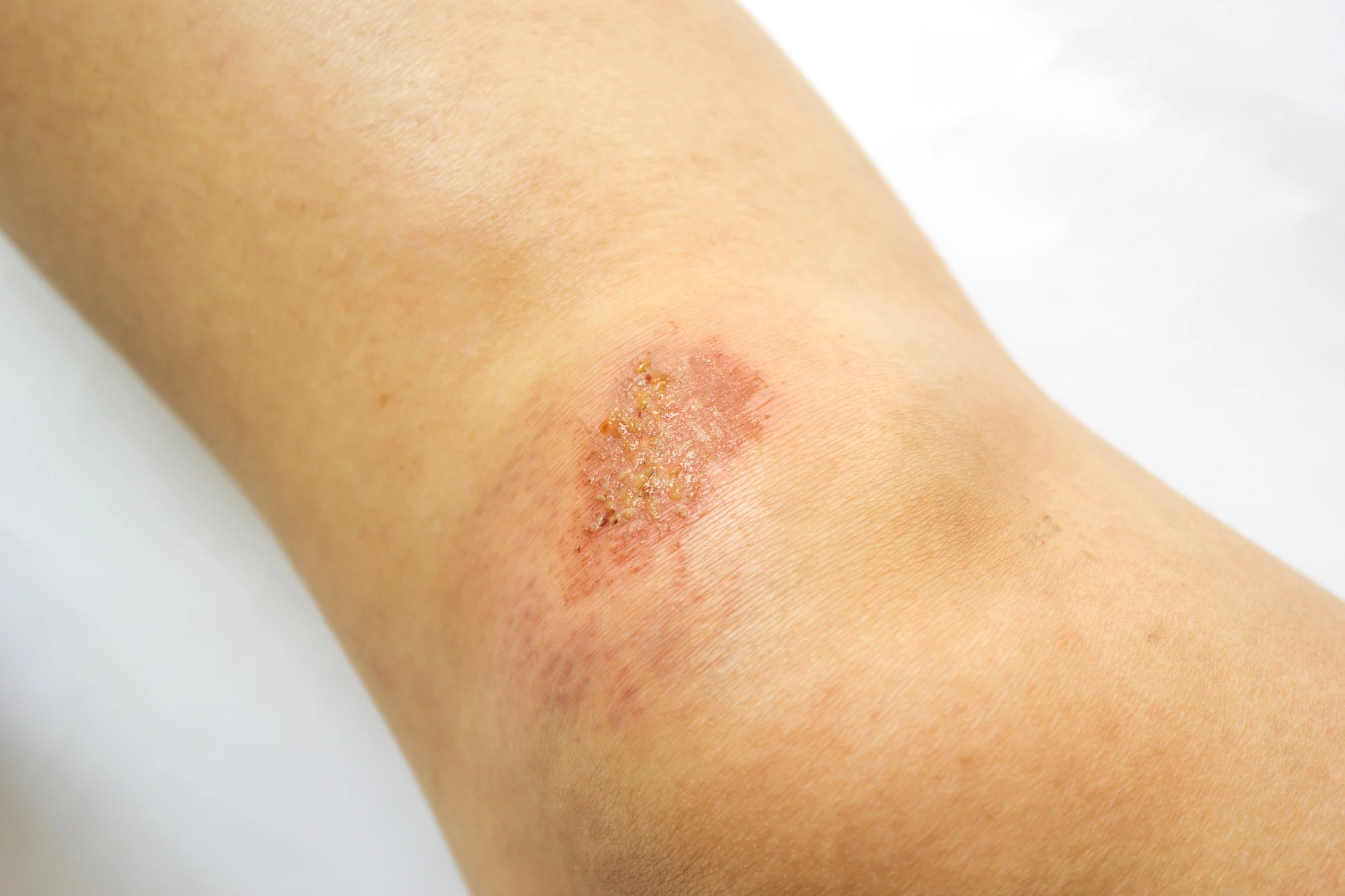

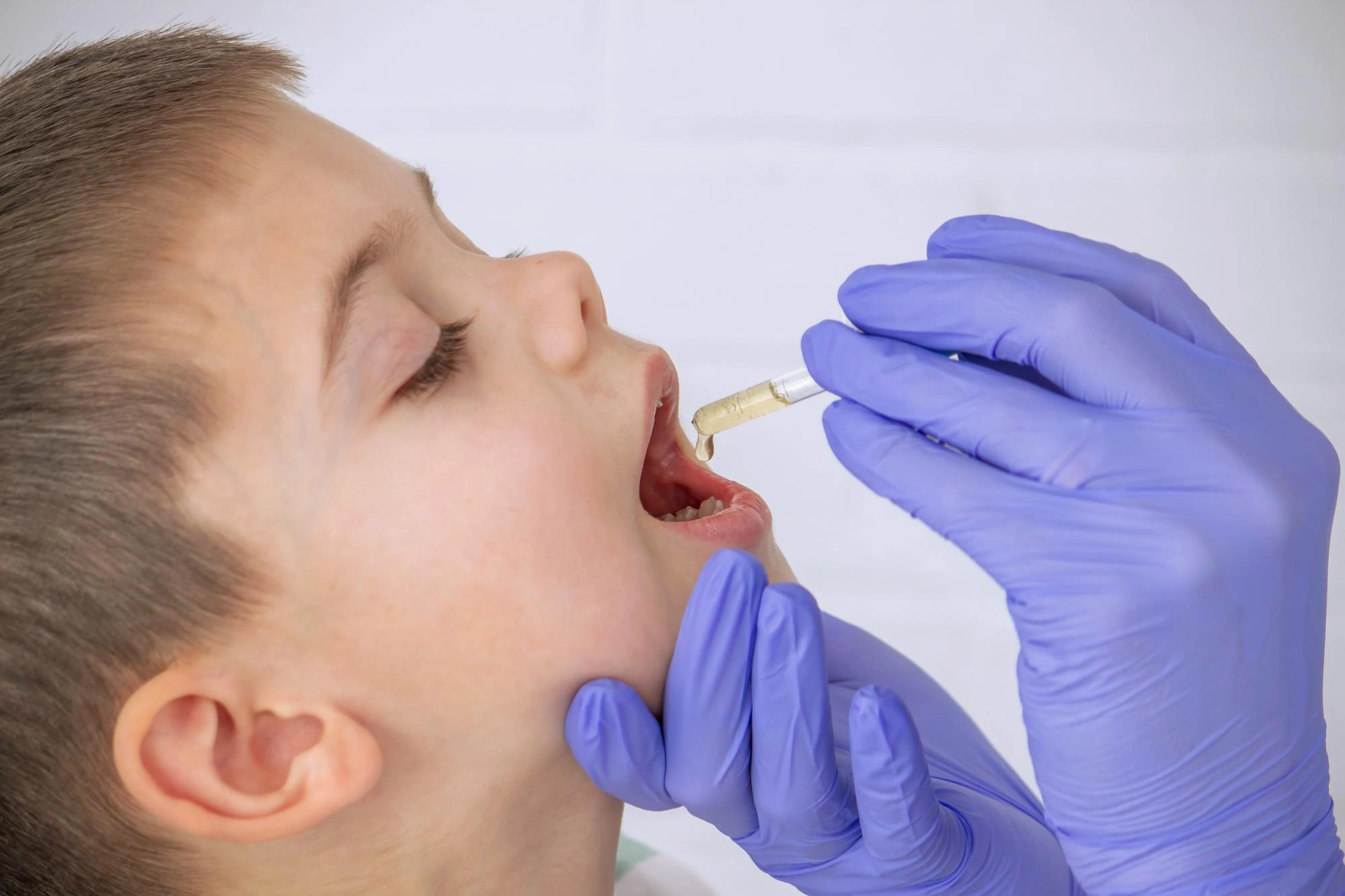



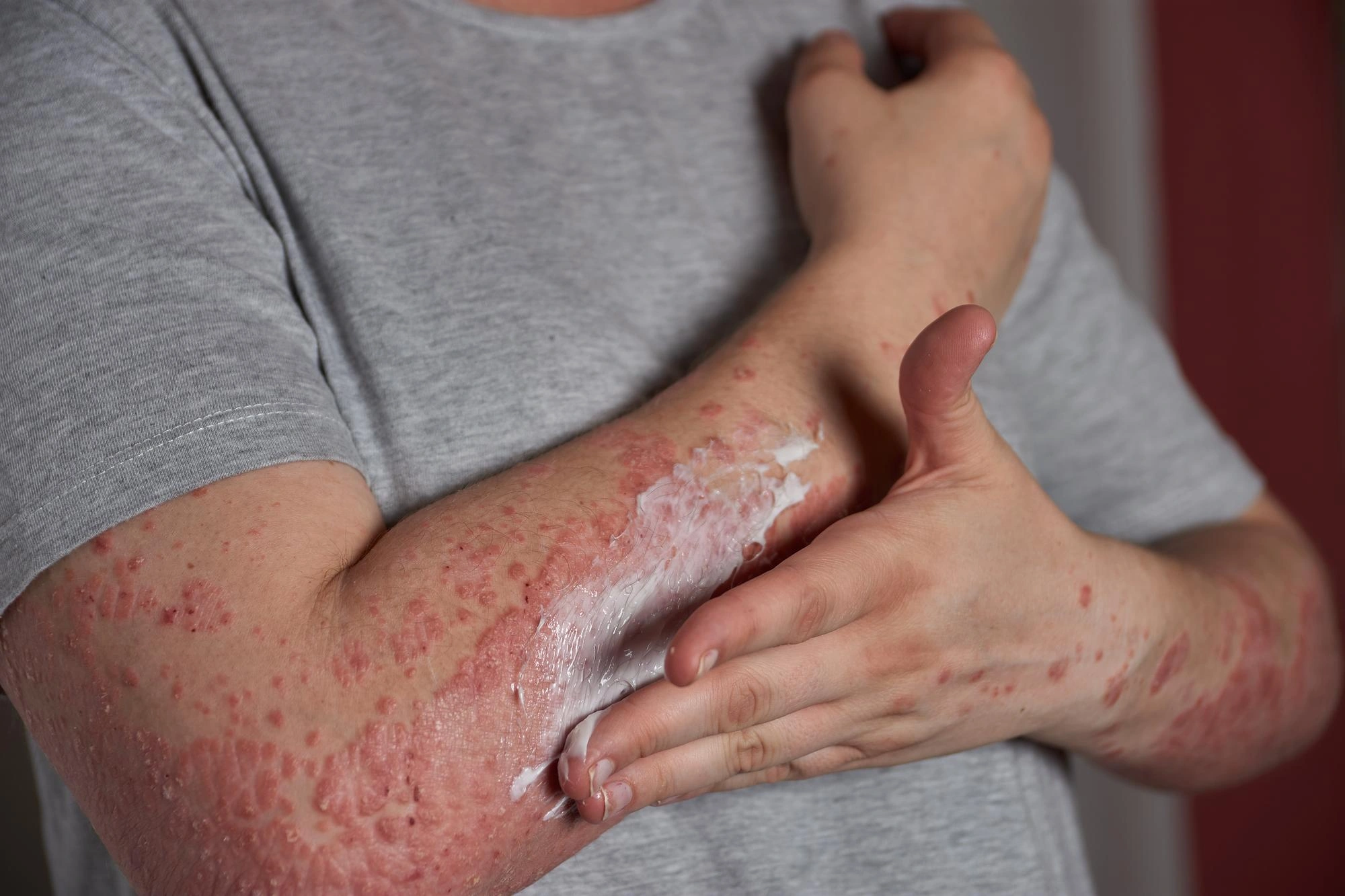
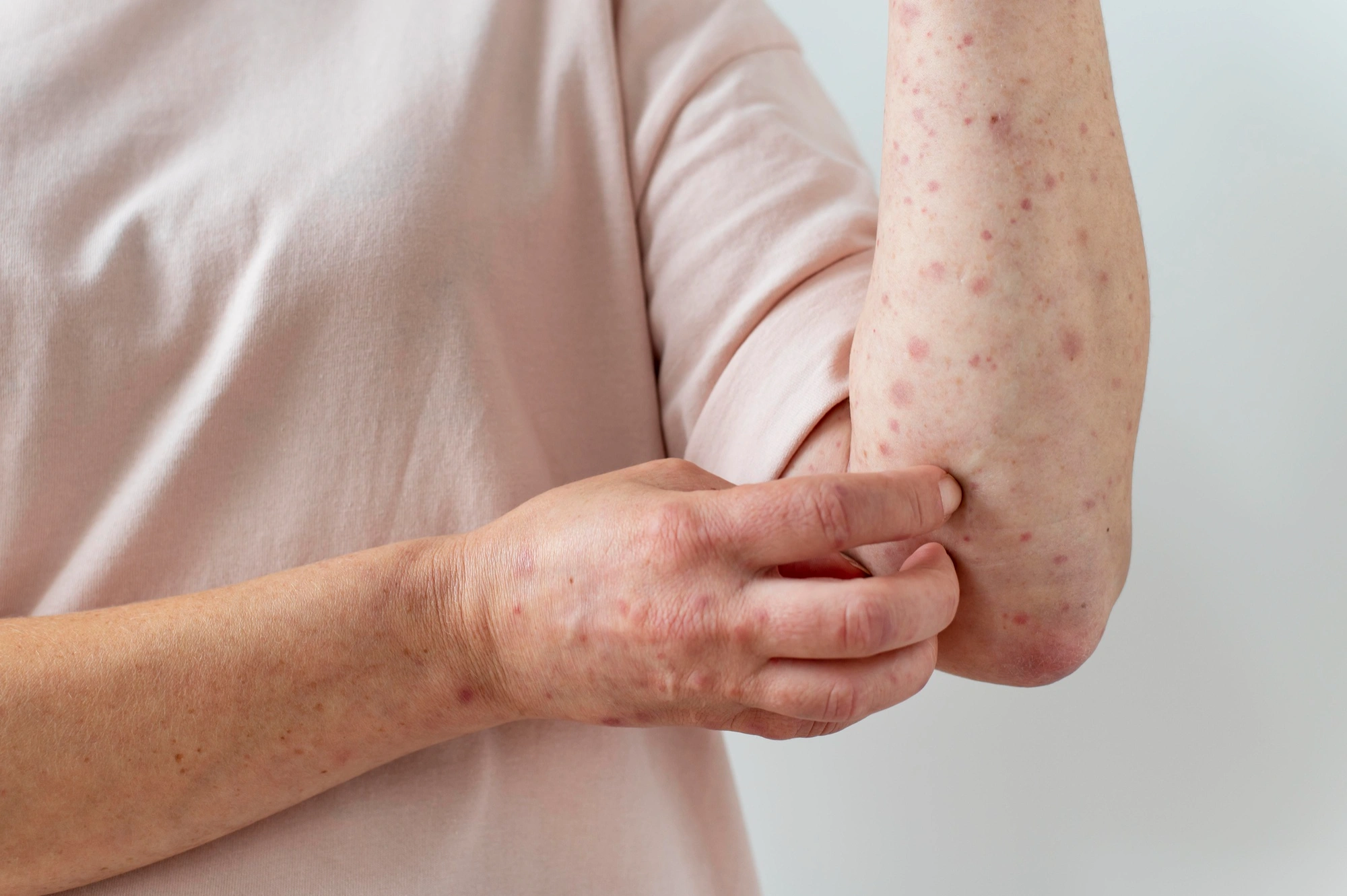

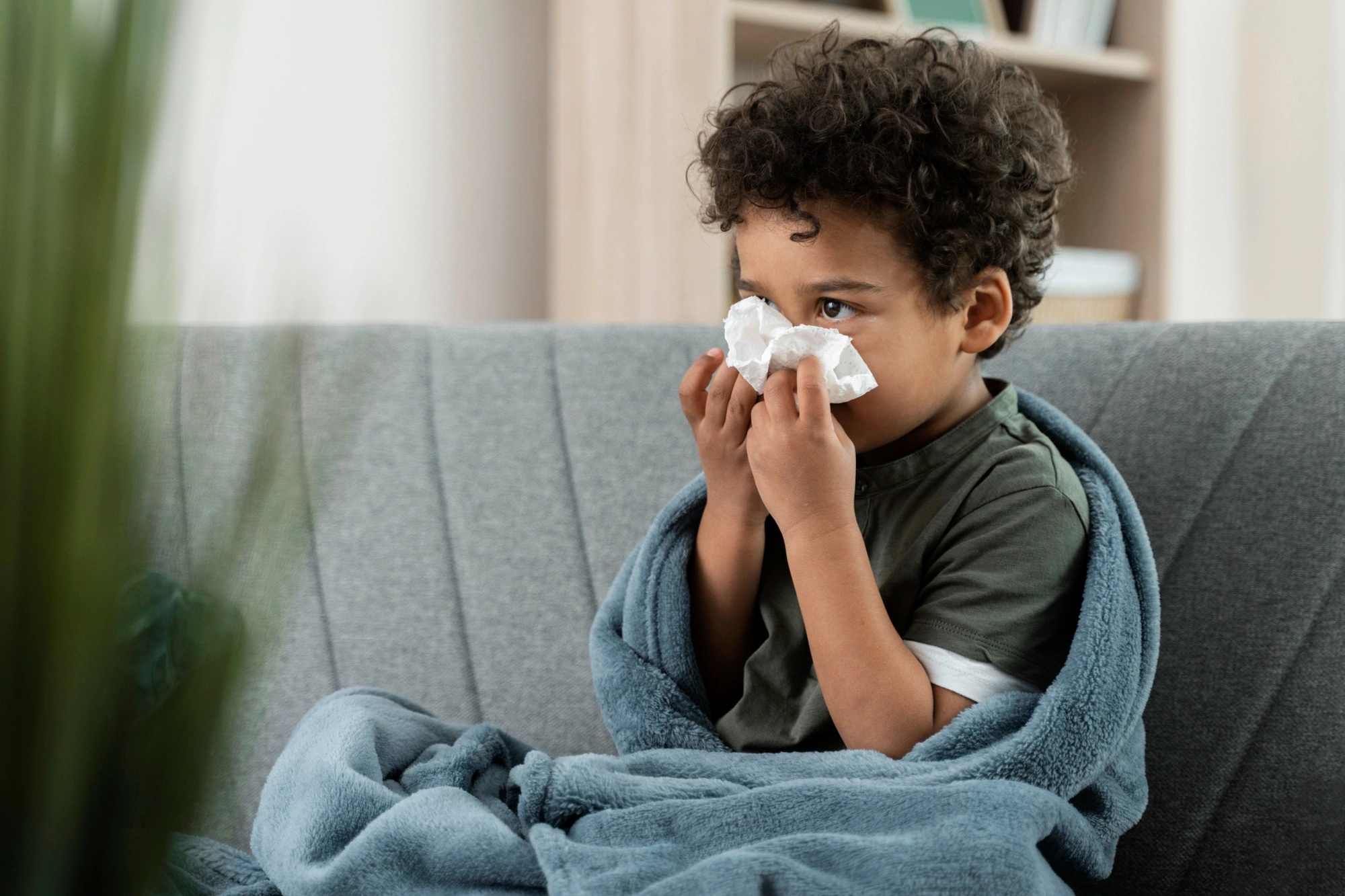

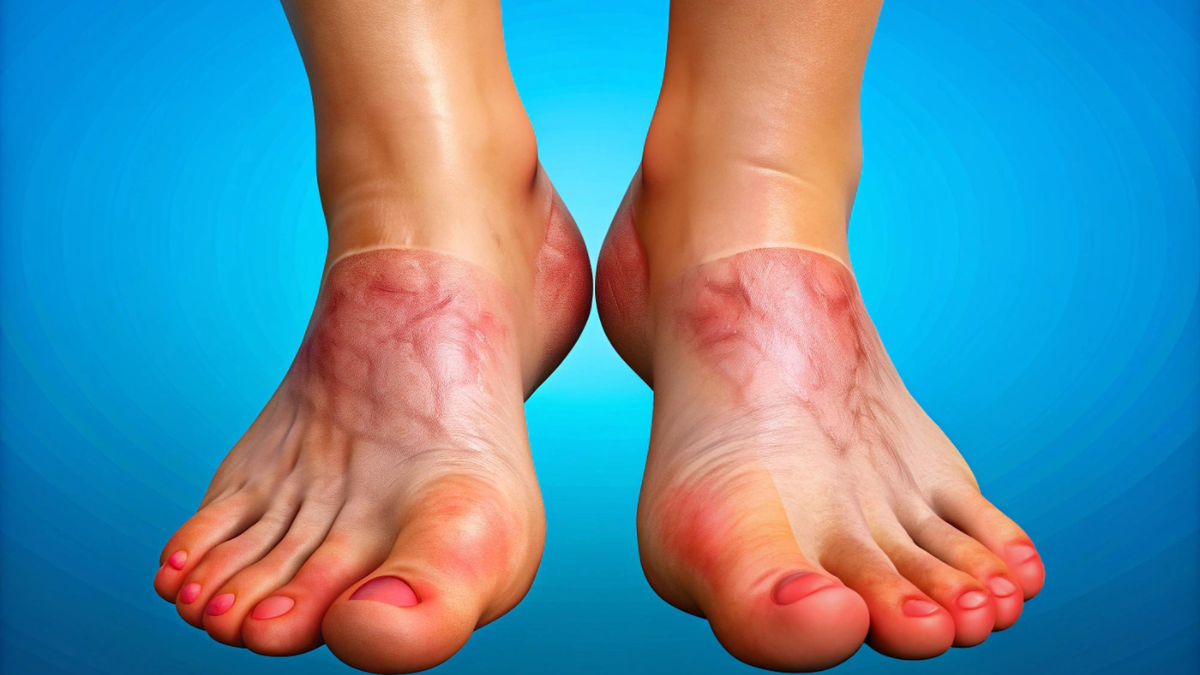













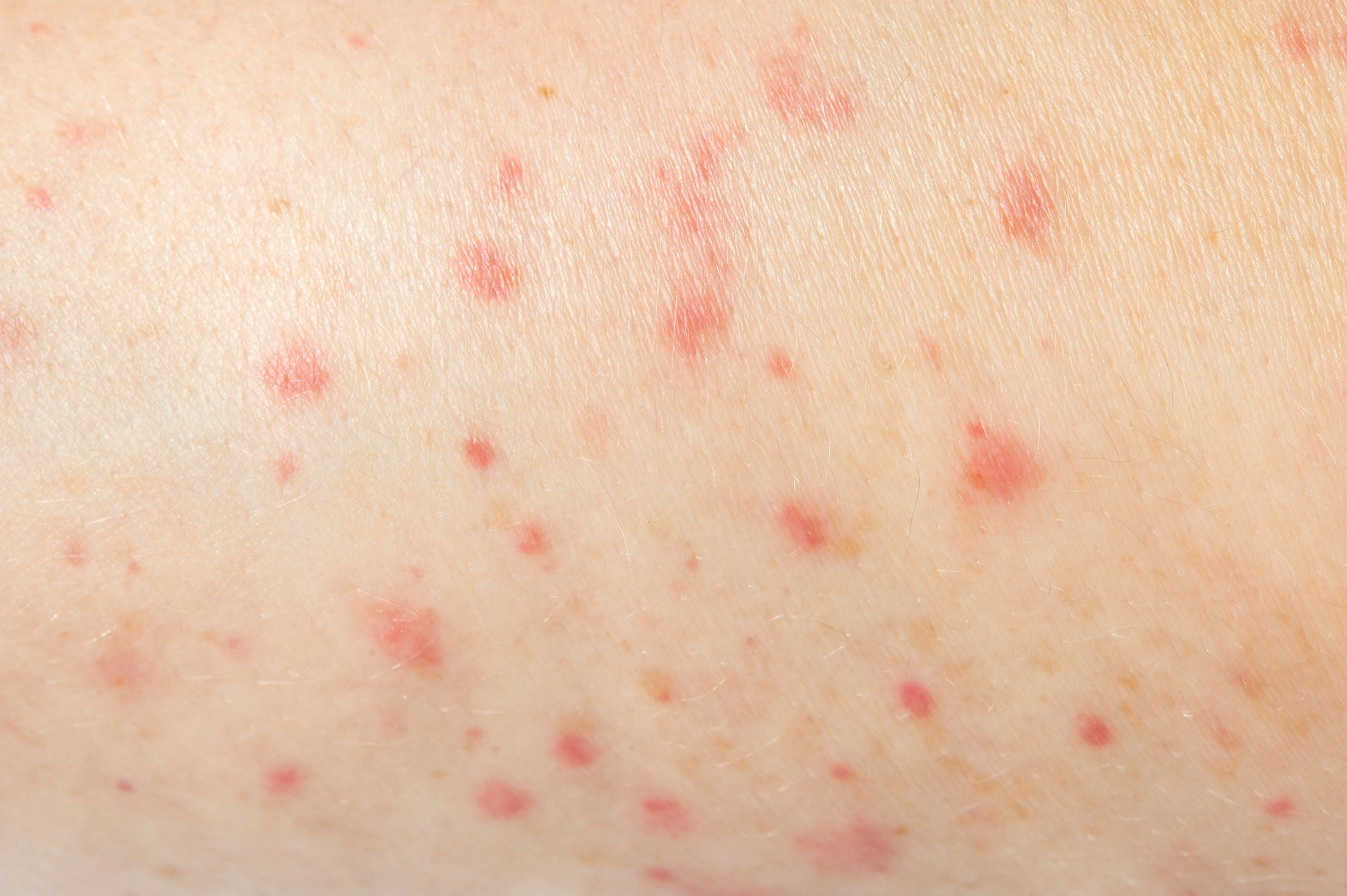
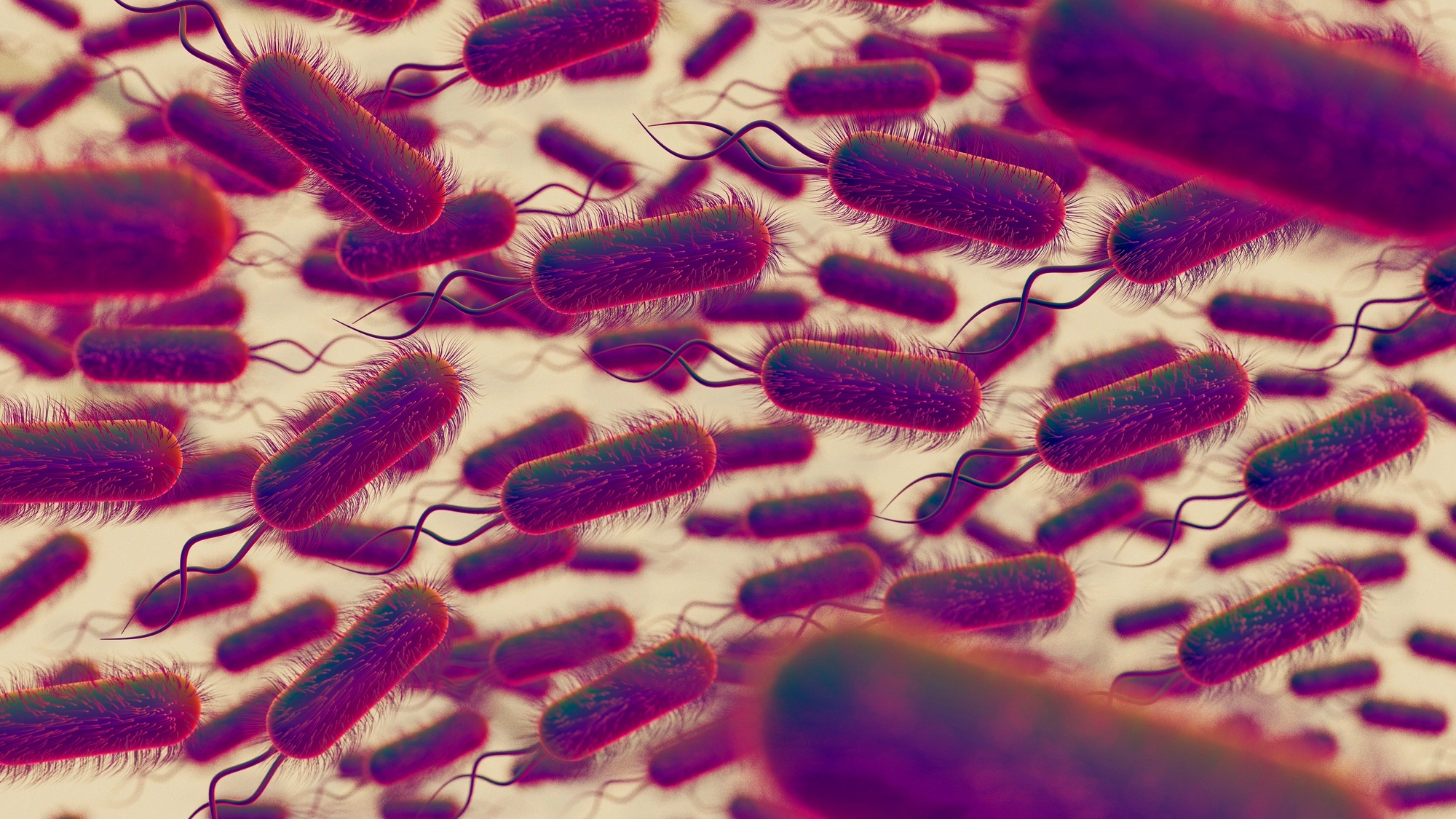


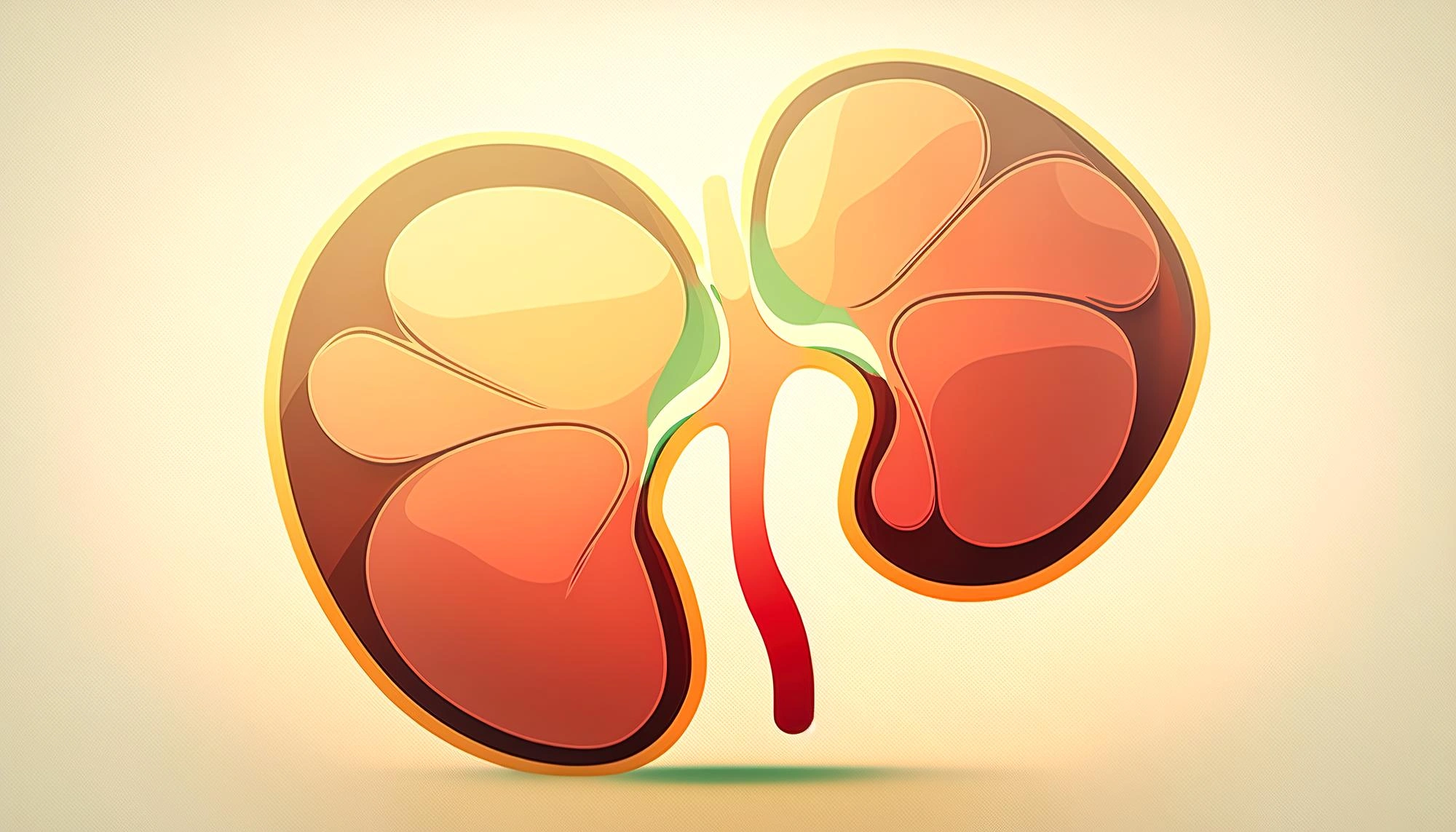
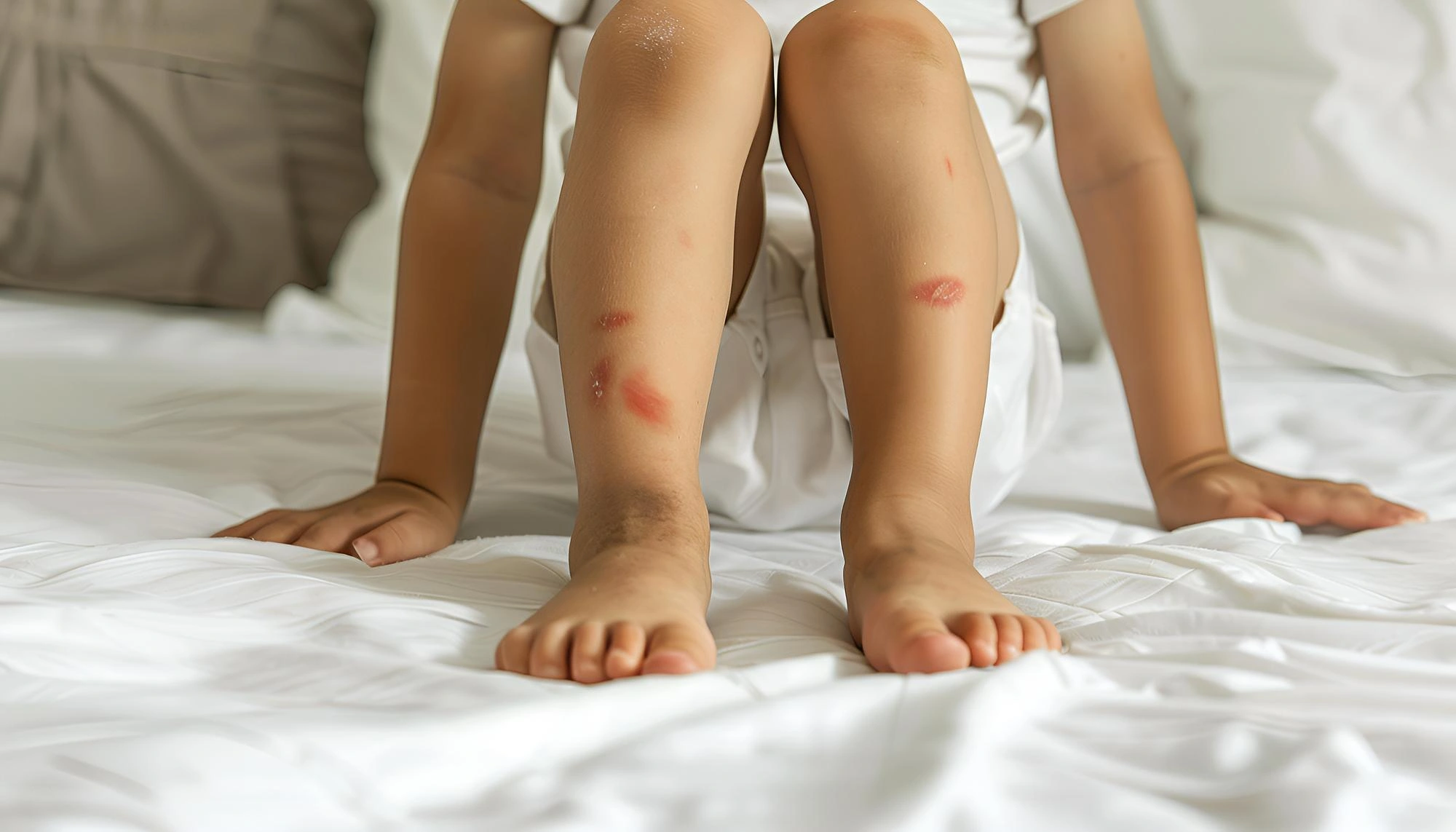
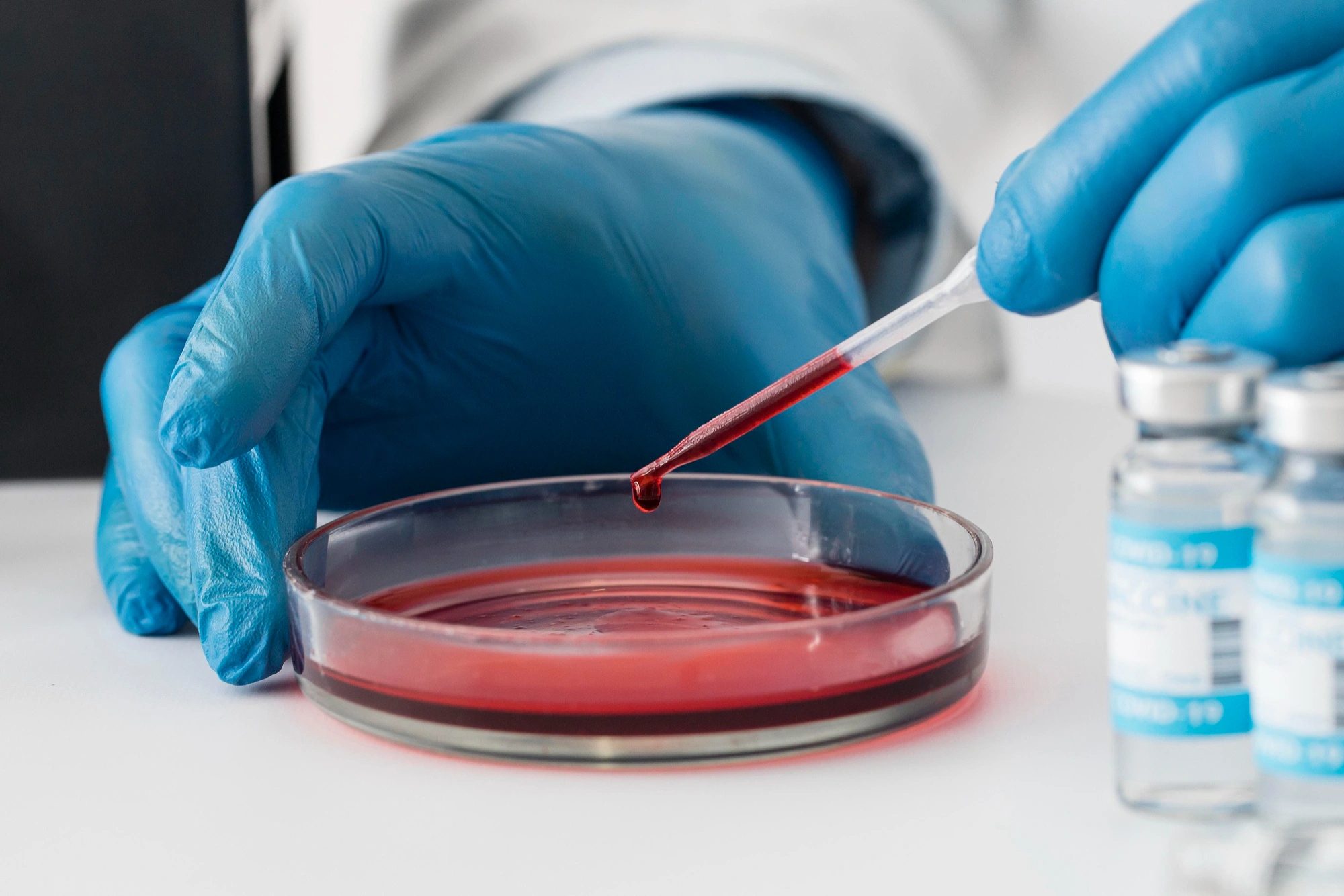




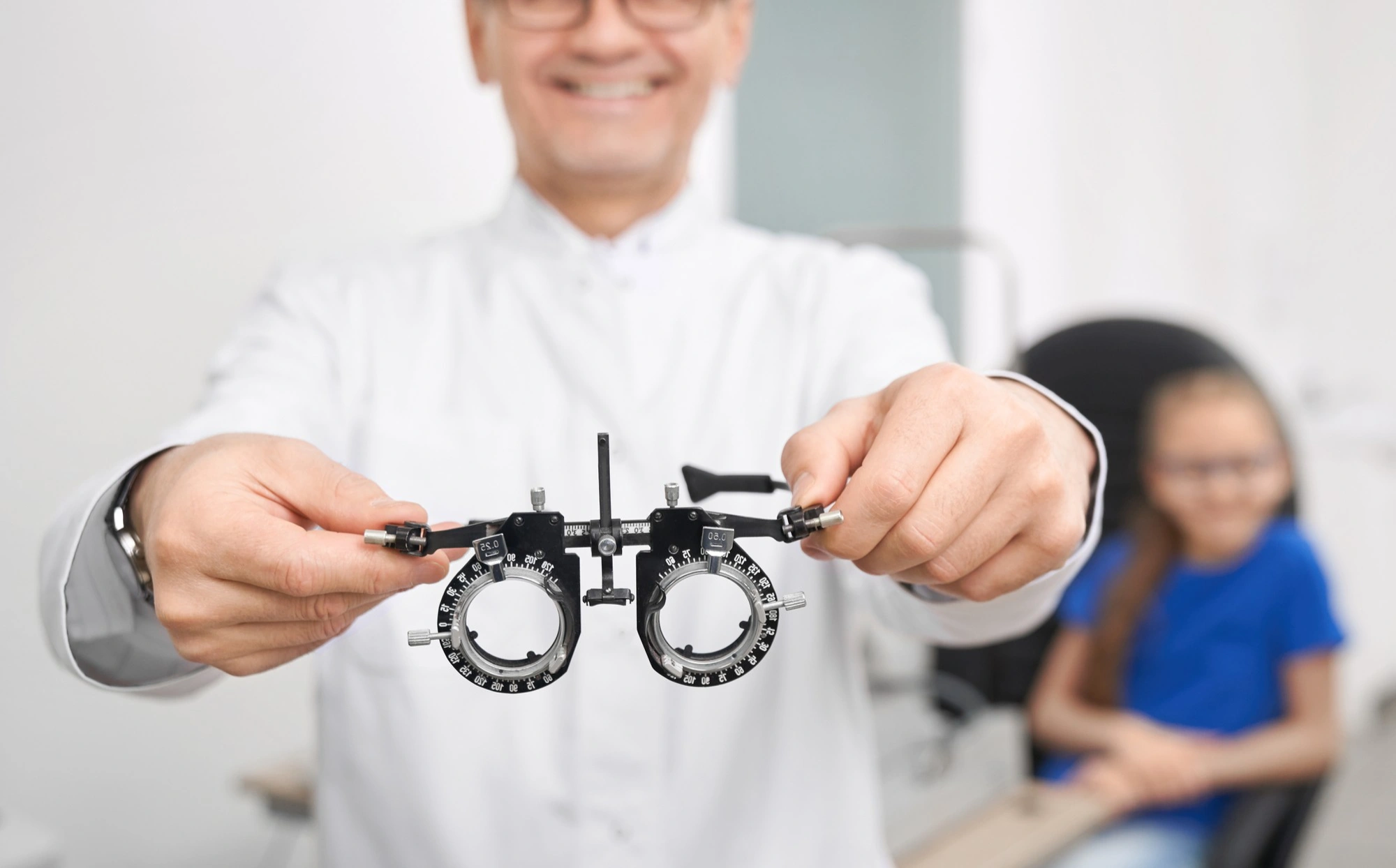





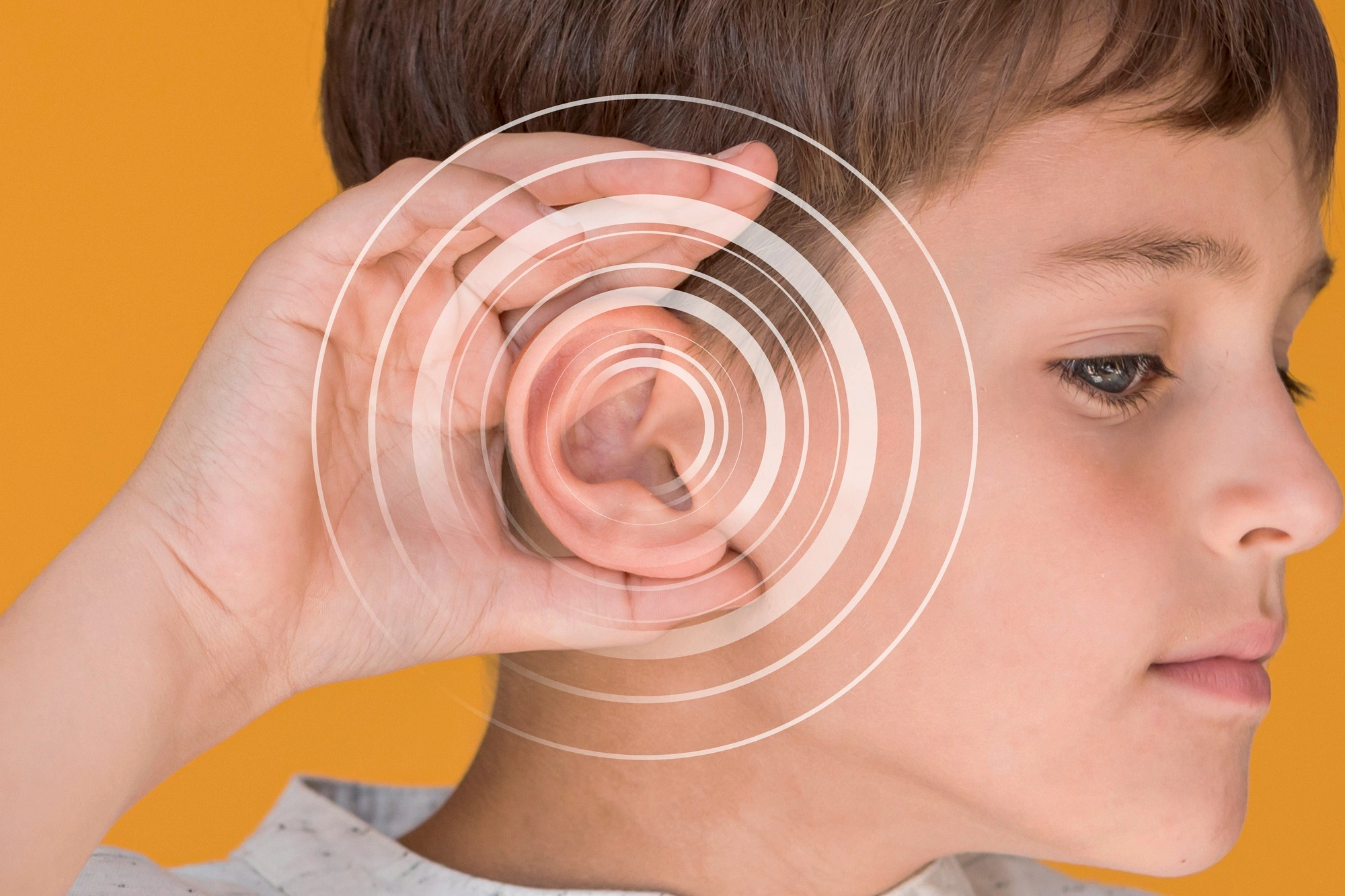














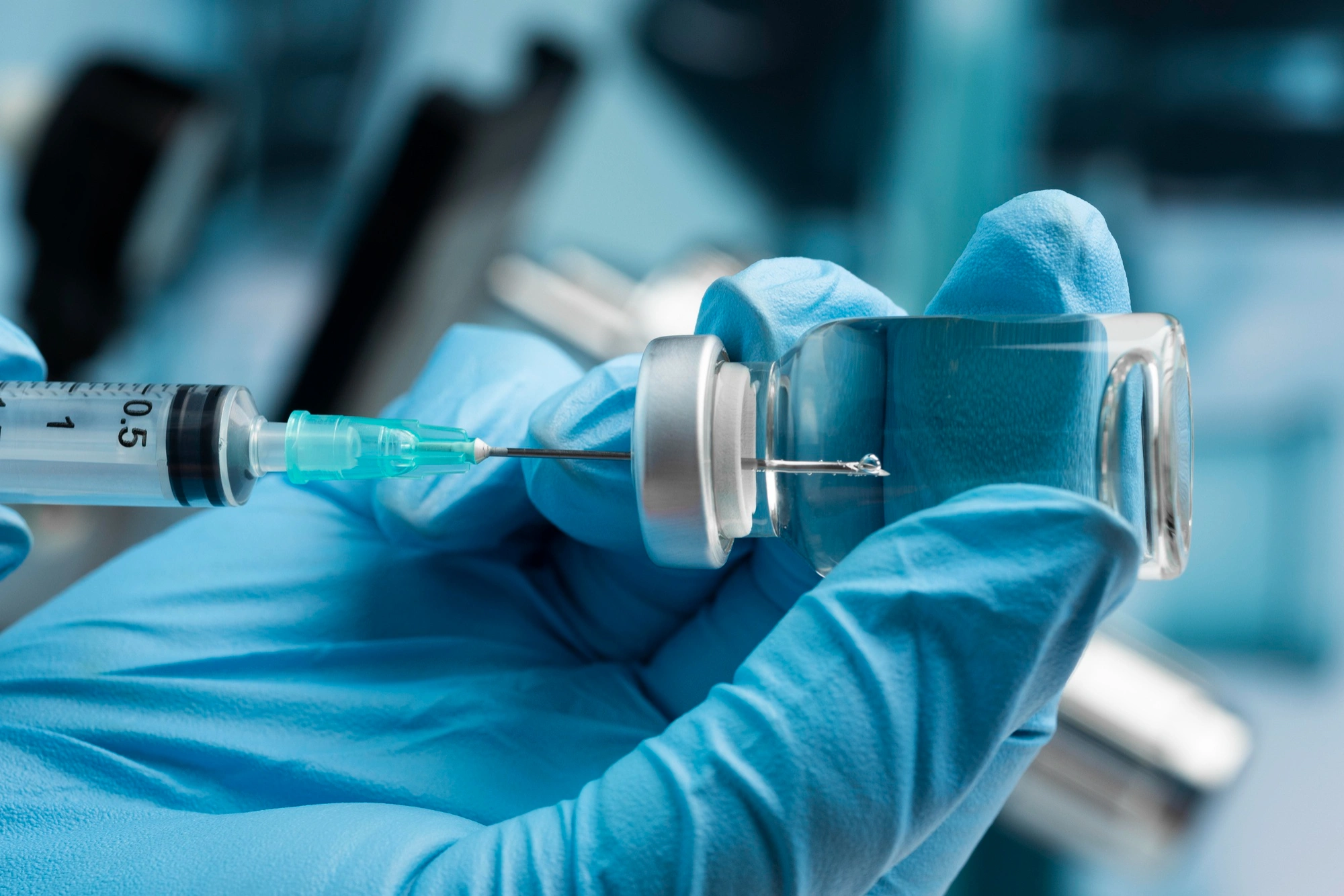

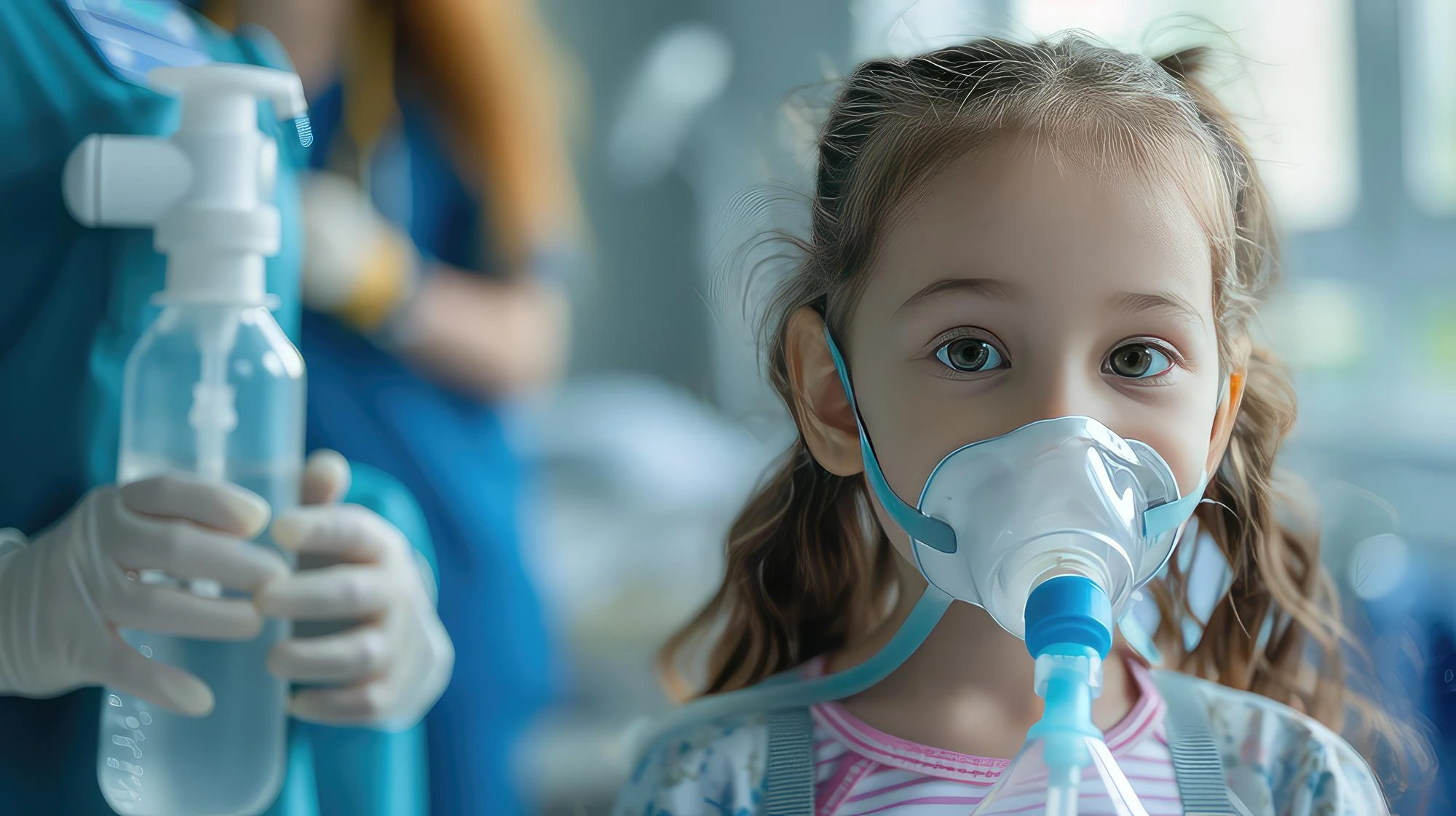























































.webp)
.webp)
.webp)
.webp)
.webp)
.webp)
.webp)
.webp)
.webp)
.webp)
.webp)
.webp)
.webp)
.webp)
.webp)
.webp)
.webp)
.webp)
.webp)
.webp)

.webp)
